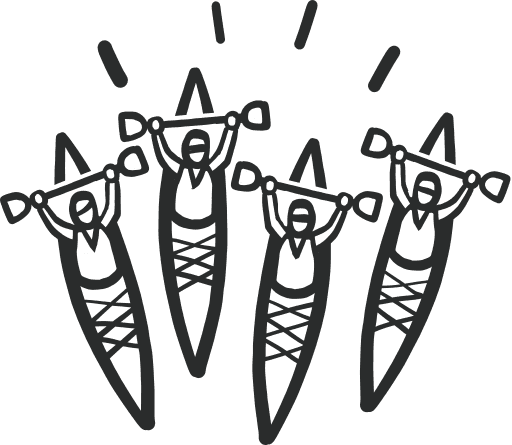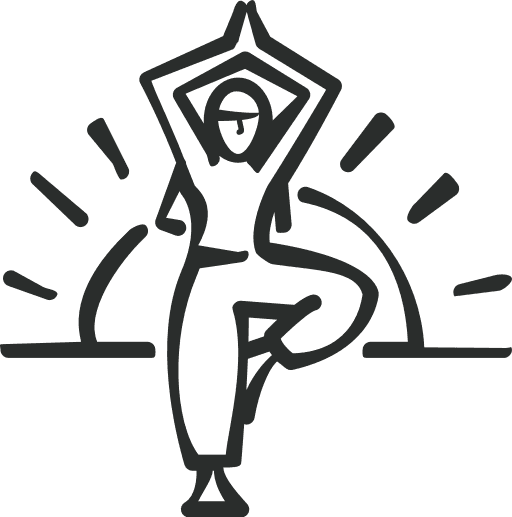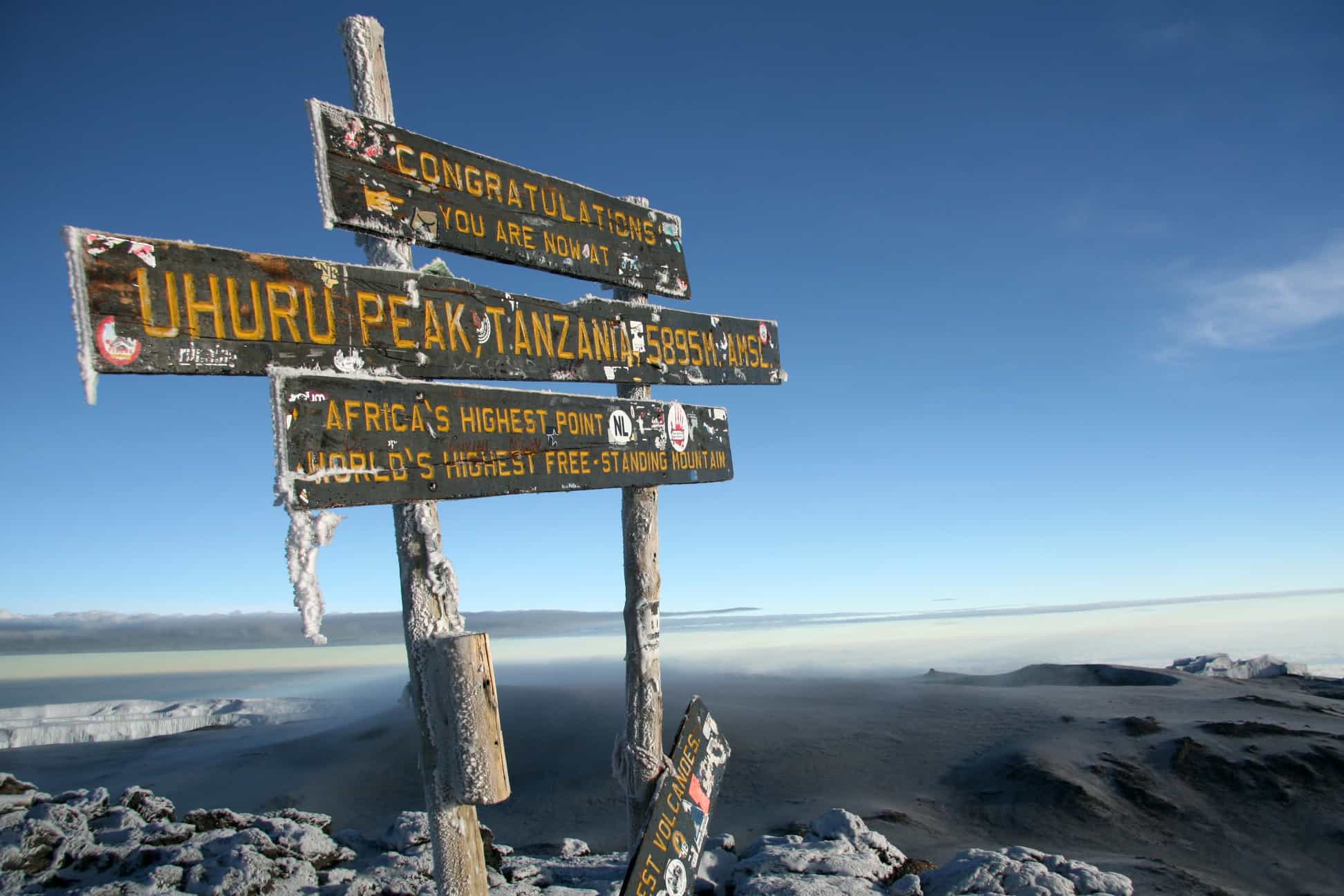
Climb Mount Kilimanjaro (5895m) via The Machame Route
Hike the most scenic route to the ‘Roof of Africa’ – the continent’s highest peak
What's Included?
Activities & Certified Guides
All itinerary activities with local, certified guides and a support teamHotel & Camping
6 nights camping and 2 nights in a hotelMeals
All your breakfasts, lunches and dinners are includedTransfers
To and from the airport and everything in betweenPermits & Porterage
All permits, taxes and licenses; porters to carry your overnight luggage and camping equipment on the trekSmall Like-minded Groups
Solo-friendly by design, join our small n’ sociable groups of up to 12 like-minded, active and outdoorsy people…
…
What's it like?





















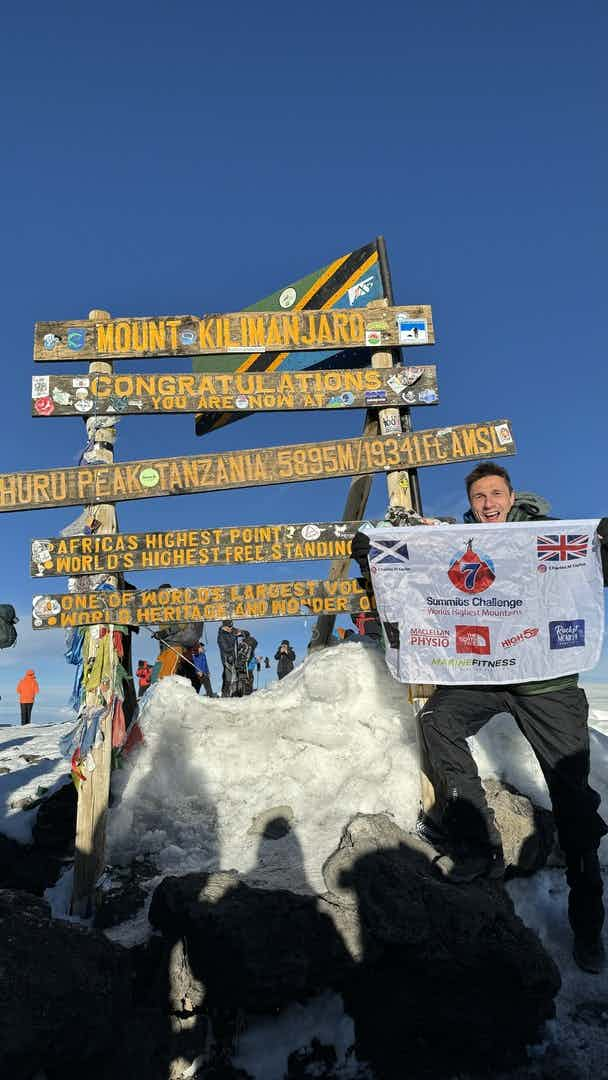
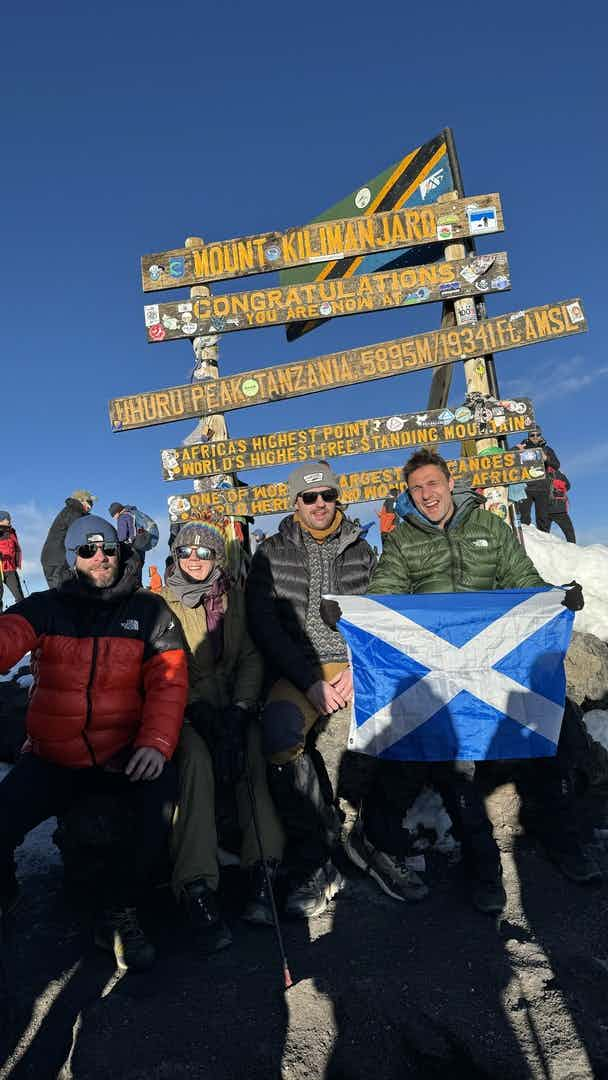
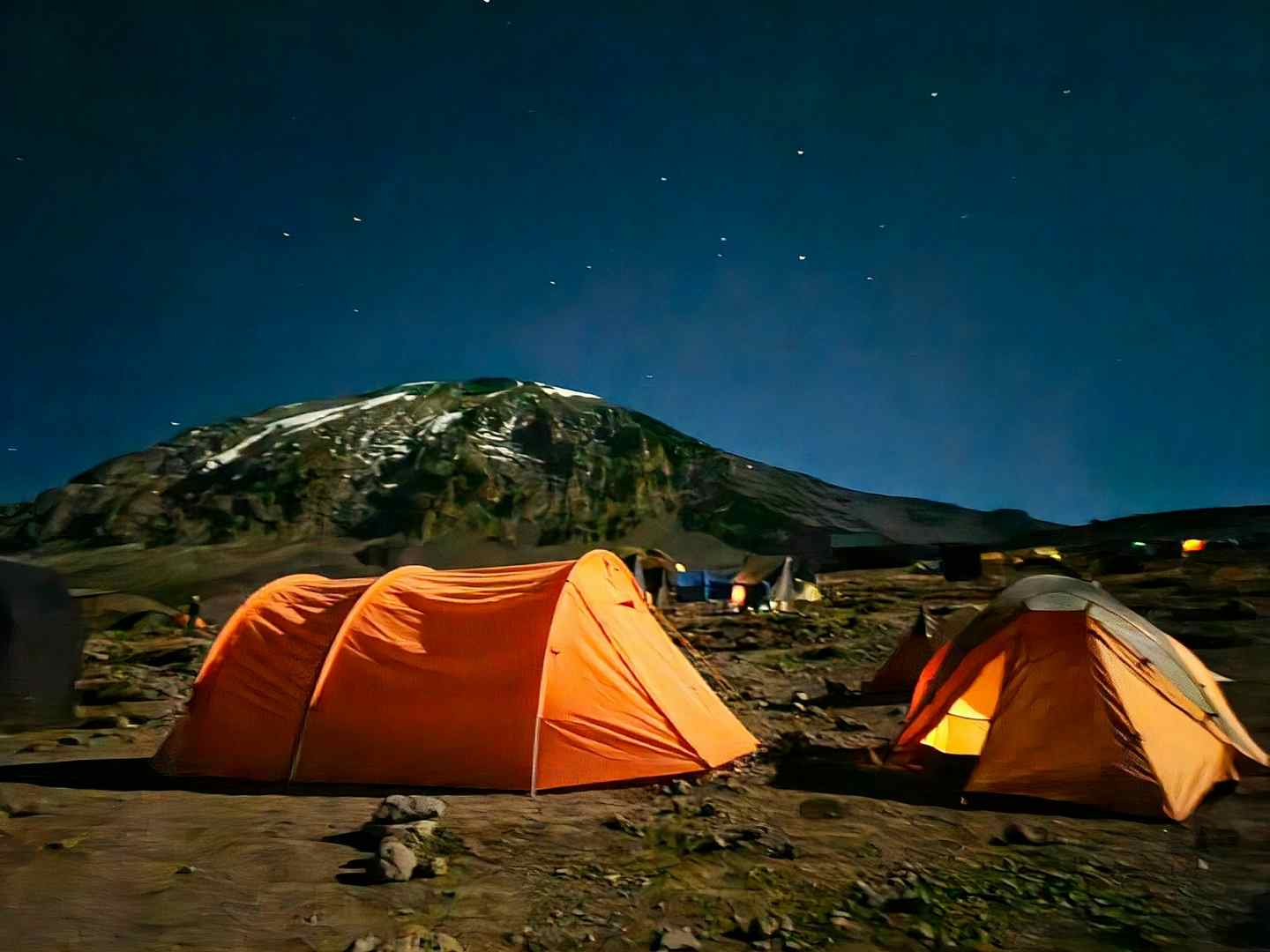
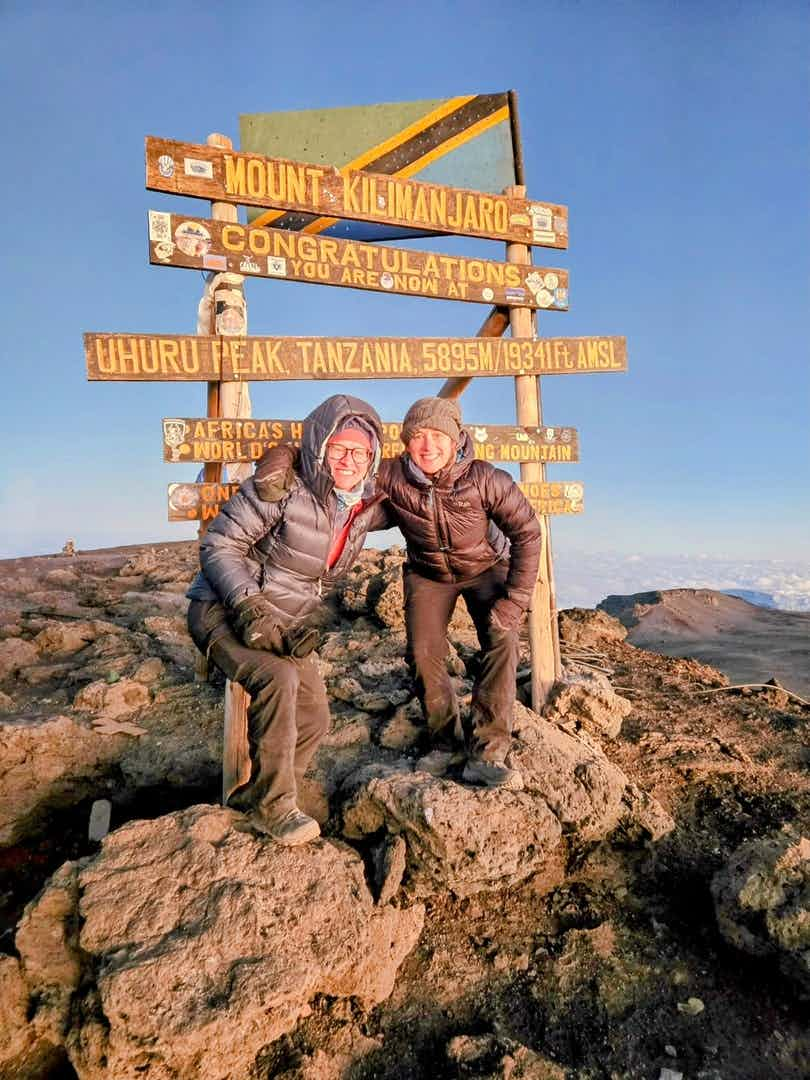
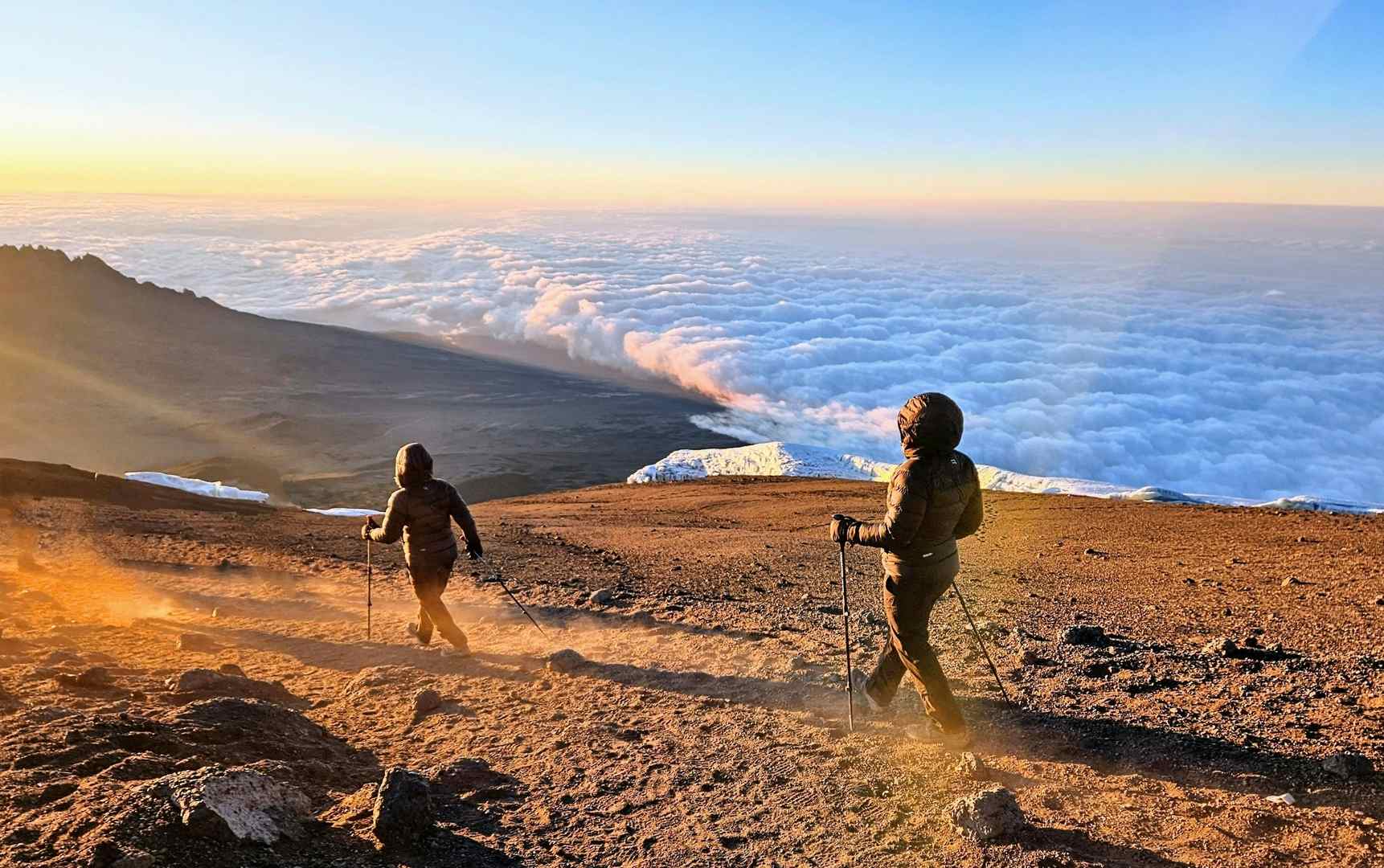
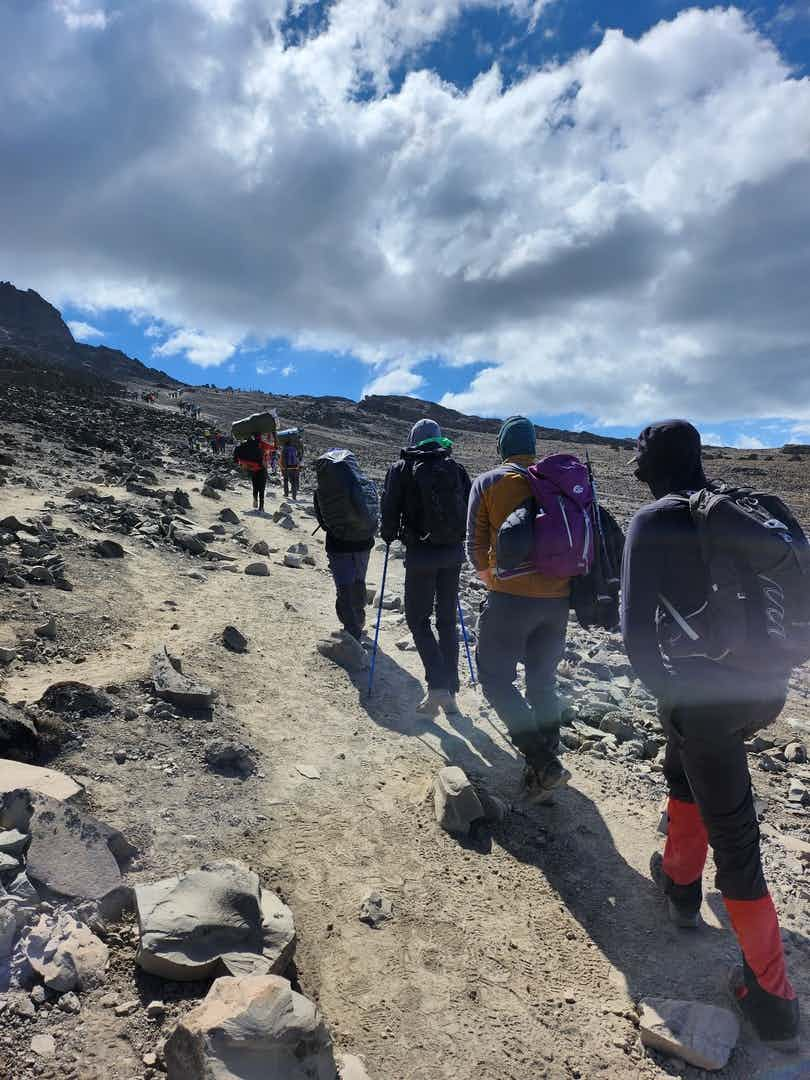
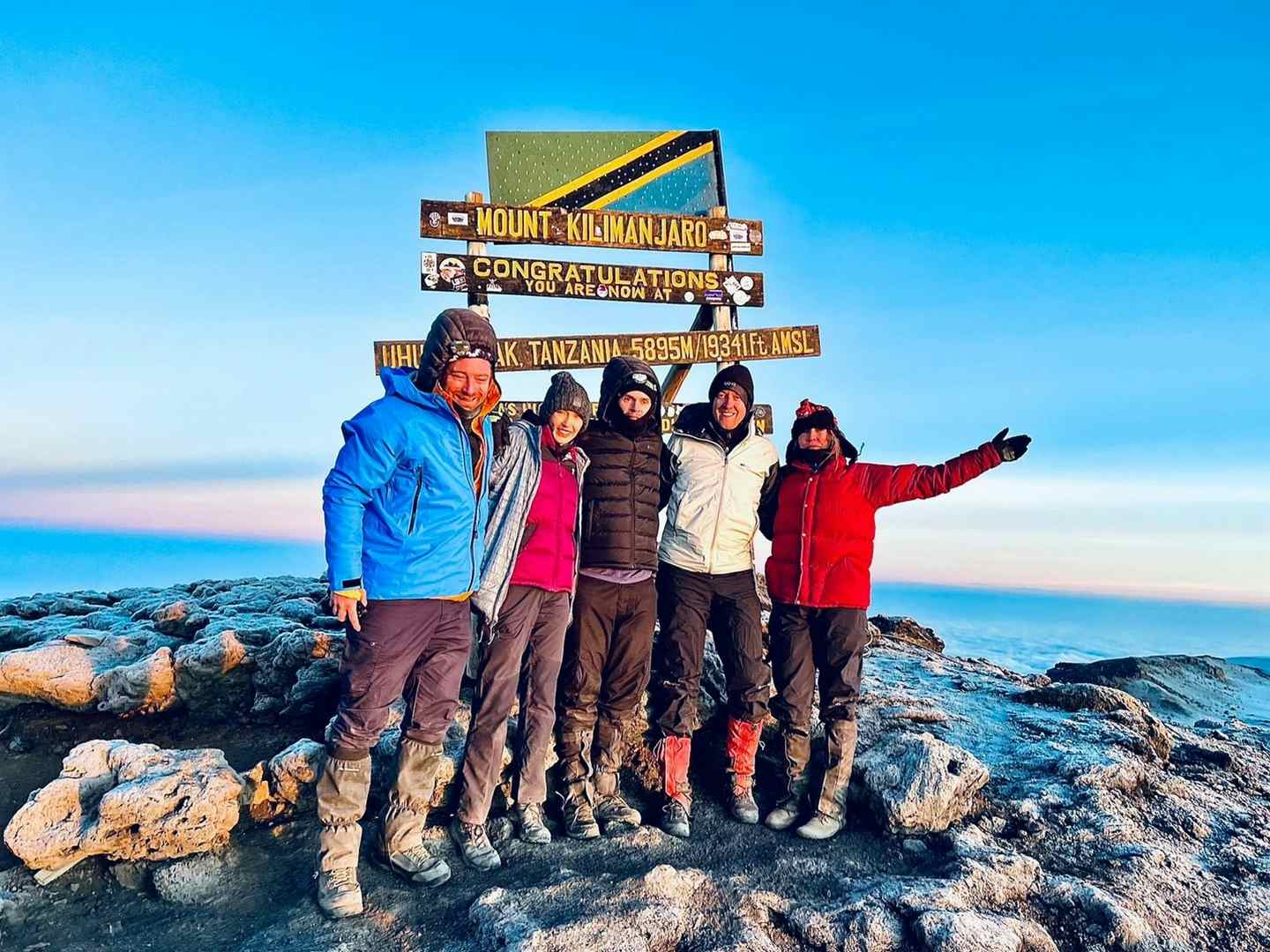
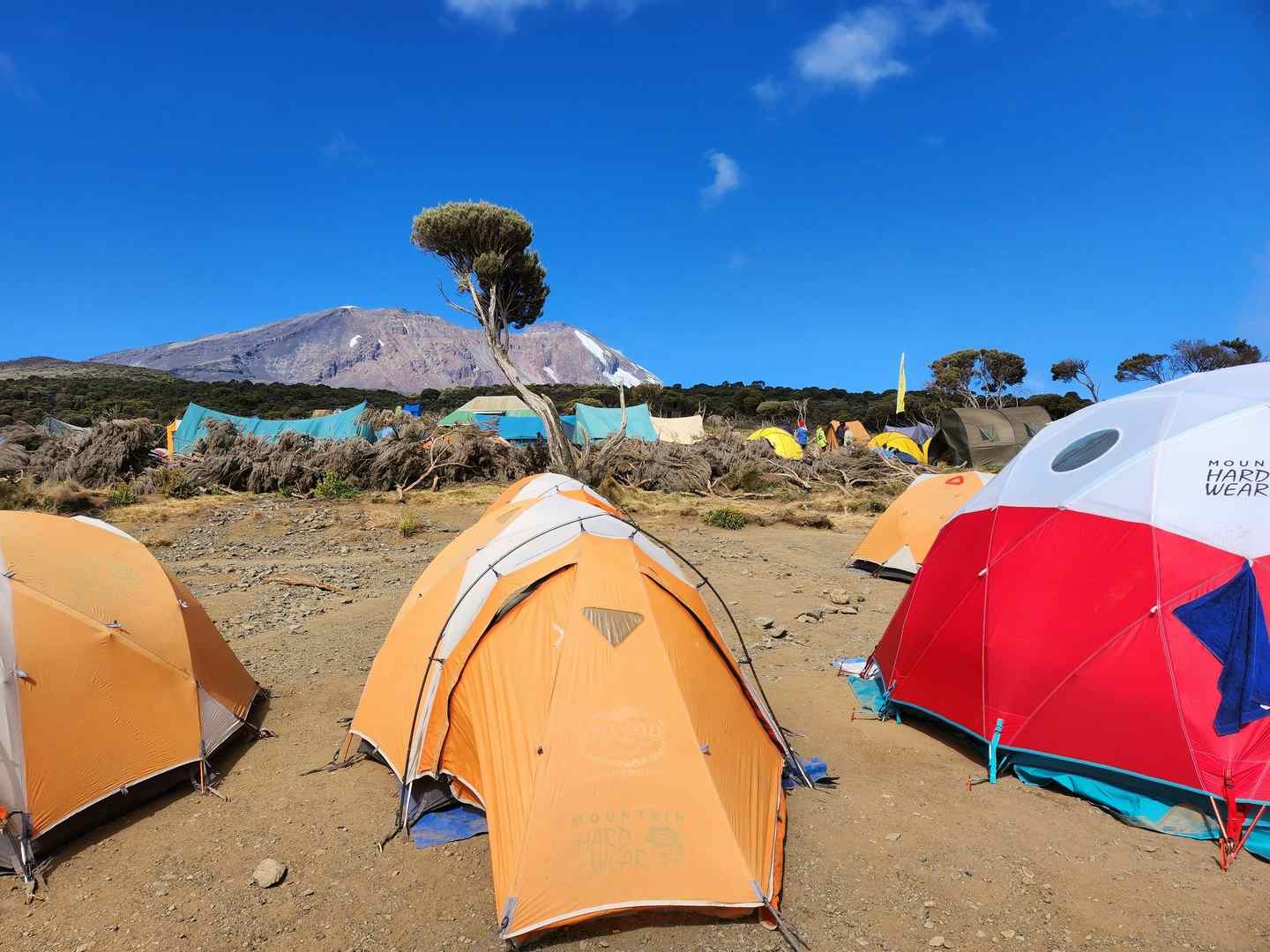
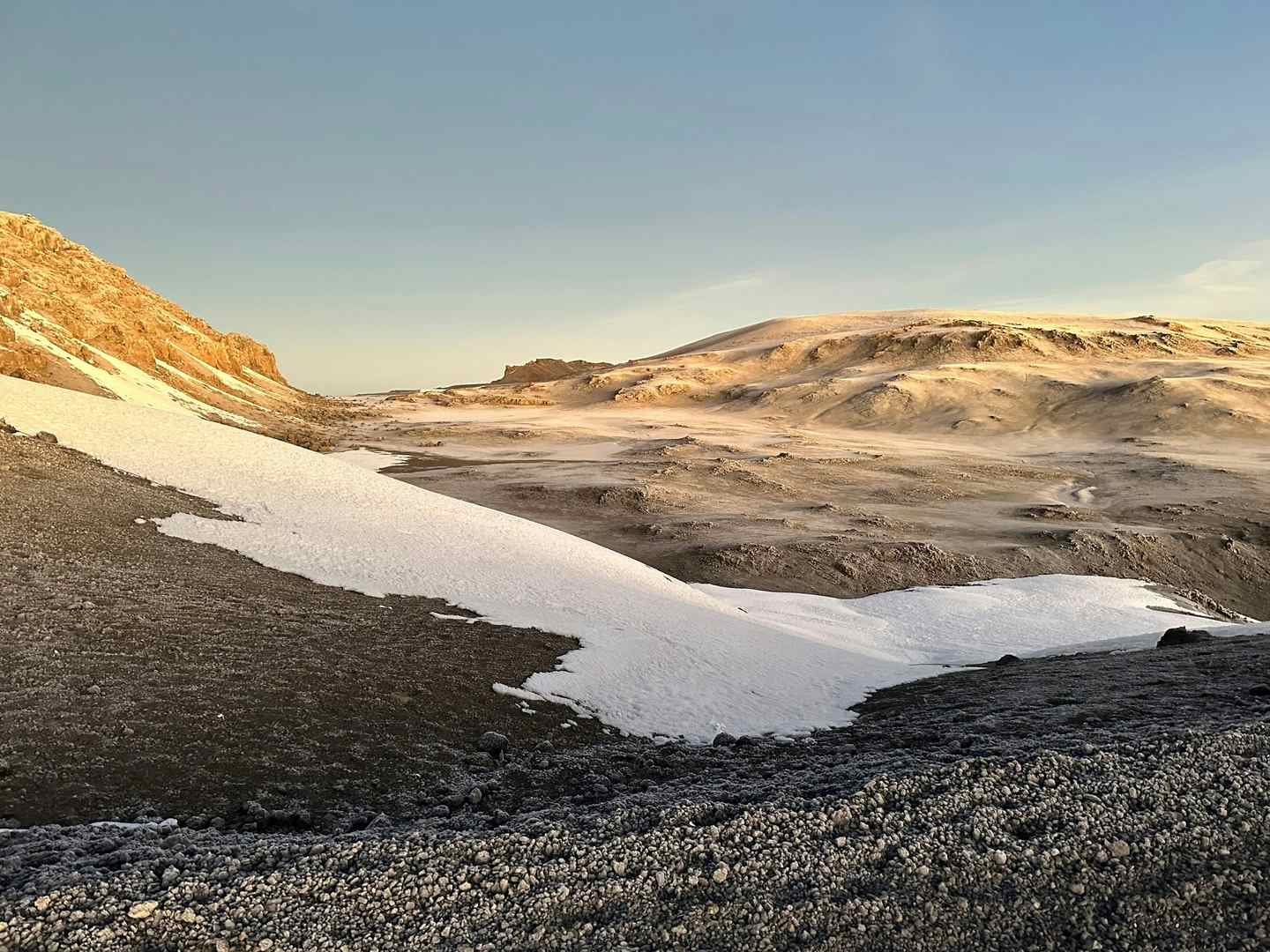
Climb to the summit that's on every adventurer's hit-list: the iconic 5895m peak of Mount Kilimanjaro
Bask in a backdrop of endless scenic vistas on a trail that offers a better chance of success than other, shorter routes
Trek through a variety of ecosystems including rainforest, moorland, alpine desert and beneath glaciated precipices
Fancy extending your adventure? Check out Climb Kilimanjaro and Go on Safari to see Tanzania's iconic wildlife, or Climb Kilimanjaro and Go to Zanzibar for some beachside R&R
Key Information
Day 1
Welcome to Tanzania!
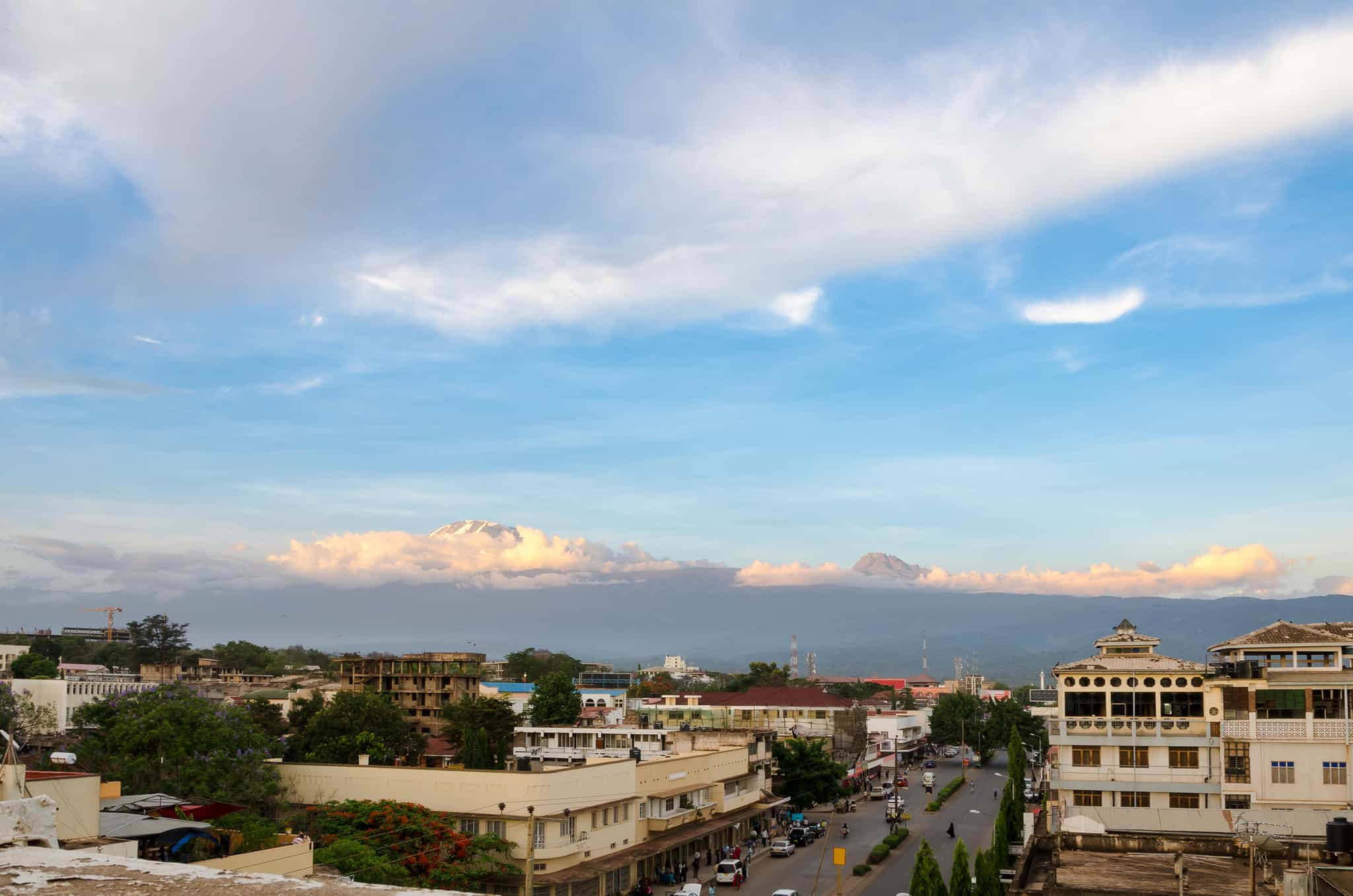
Fly into Kilimanjaro International Airport and transfer to your accommodation at the Weru Weru River Lodge, where your host will be waiting for you. After meeting your guide for a detailed briefing and equipment check, you can get to know your fellow travellers and then retire for an early night, ready for tomorrow’s adventure.
Day 2
Machame Gate (1800m) to Machame Camp (3050m)
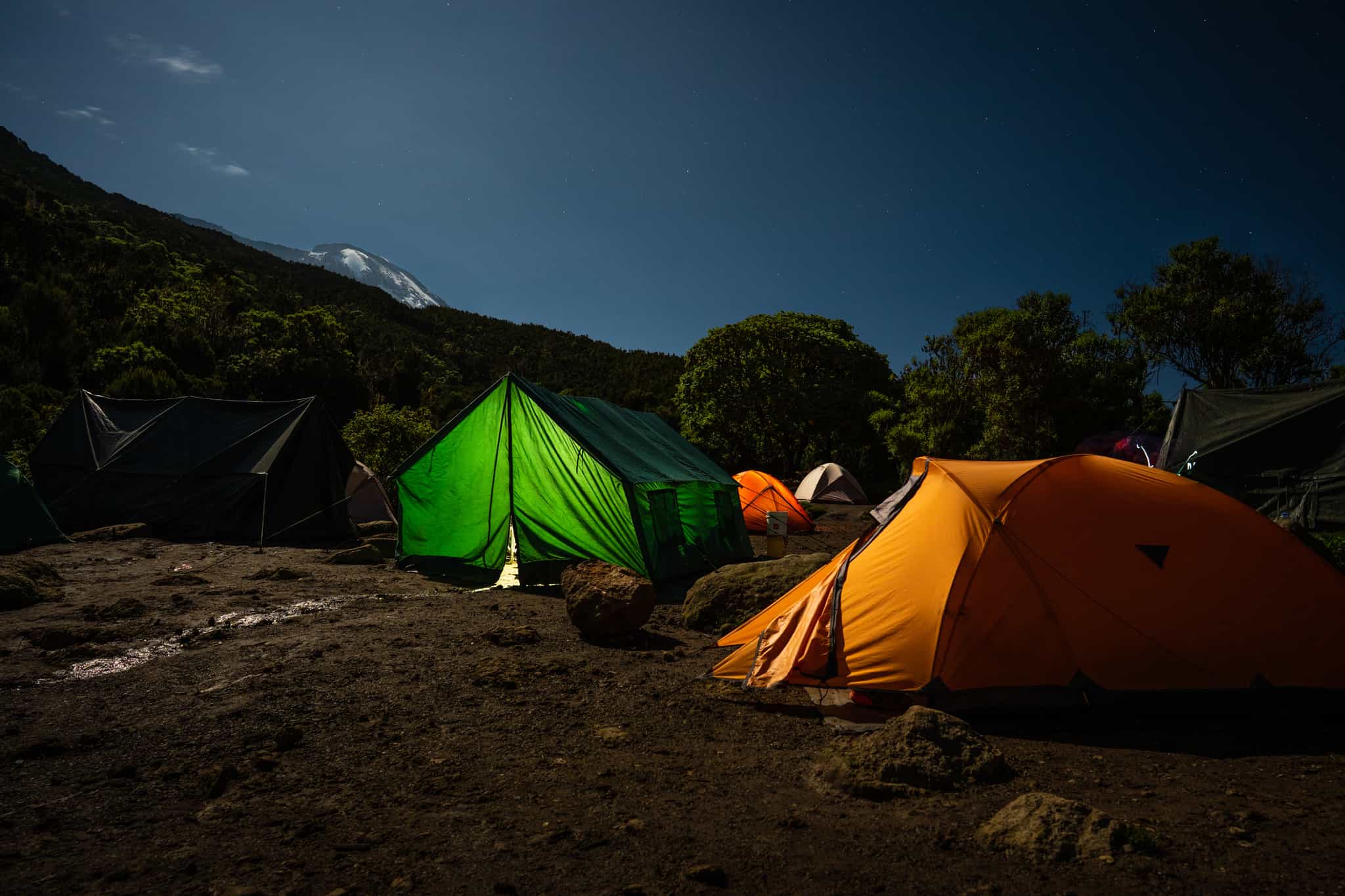
Hiking
Take a 45-minute drive through the mountain village of Machame to the Kilimanjaro National Park Gate where your ascent will begin. Hike through the lush rainforest and along winding trails and learn about the local wildlife, perhaps even spotting a blue monkey or a tree hyrax. Have your gaiters and trekking poles at the ready, as the trail can be muddy and slippery at the lower elevations. Reach your campsite, settle in and enjoy your first night on the trek.
Day 3
Machame Camp (3050m) to Shira Camp (3800m)
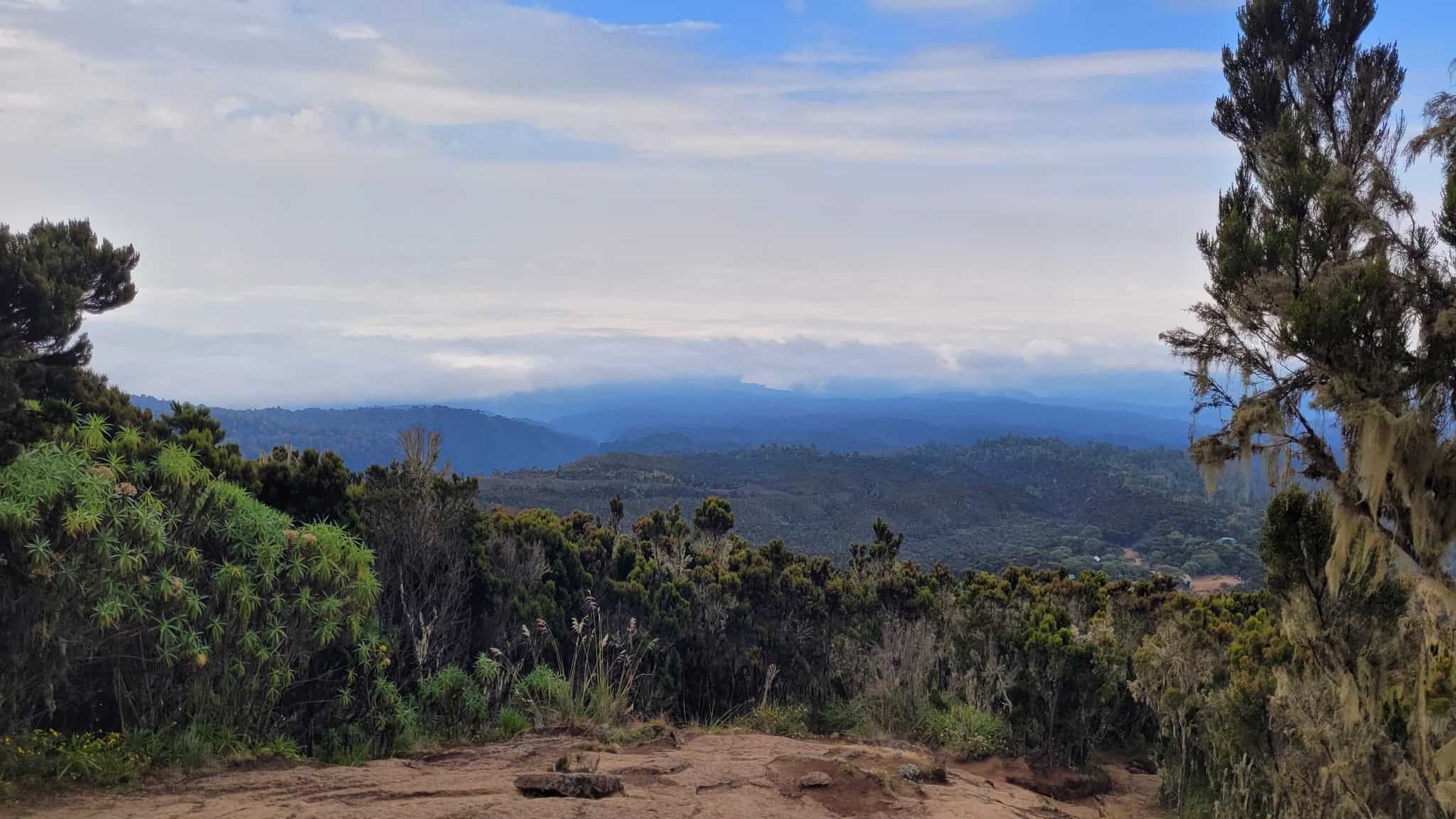
Hiking
Leave the rainforest behind you and take the ascending path through the valley and along a steep rocky ridge. From here, the route turns west into a river gorge which you will follow all the way up to Shira Camp. Drop off your daypack in your tent and climb the slope above camp for dramatic views over the surrounding plateau and the alpine landscape that awaits you next.
Day 4
Shira Camp (3800m) to Barranco Camp (3950m), via Lava Tower
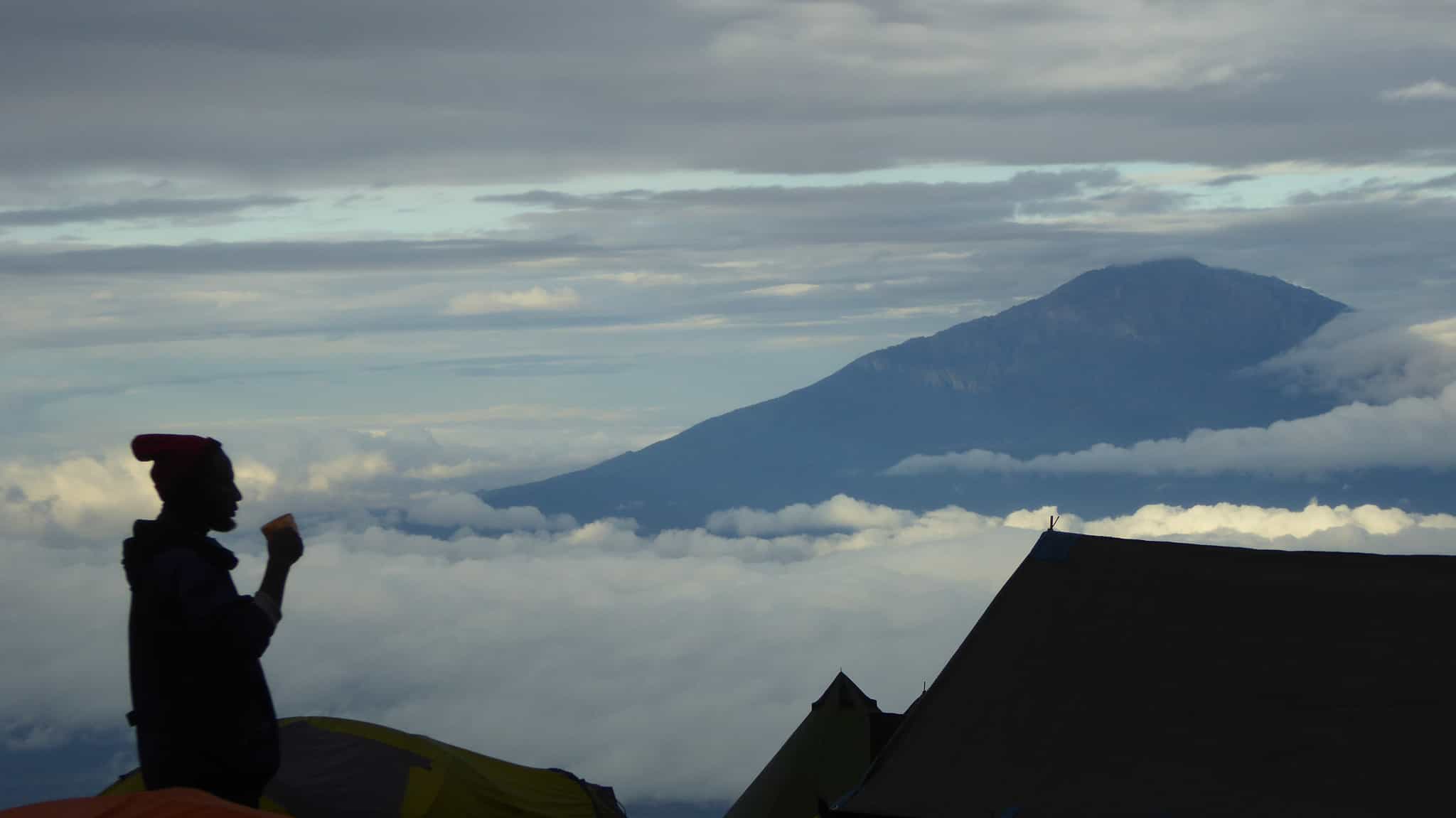
Hiking
Spend the day acclimatising as you continue the route along the alpine desert of the Shira Plateau. Hike east towards Kibo’s glaciated peak, then southeast towards Lava Tower (also known as the Shark's Tooth) at 4600m. You'll stop for lunch here to aid with acclimatisation before continuing your trek through moorland dotted with Giant Senecio trees, descending slightly to your overnight camp at Barranco where you'll have a hearty dinner and a good night’s rest.
Day 5
Barranco Camp (3950m) to Karanga Camp (4000m), via the Barranco Wall
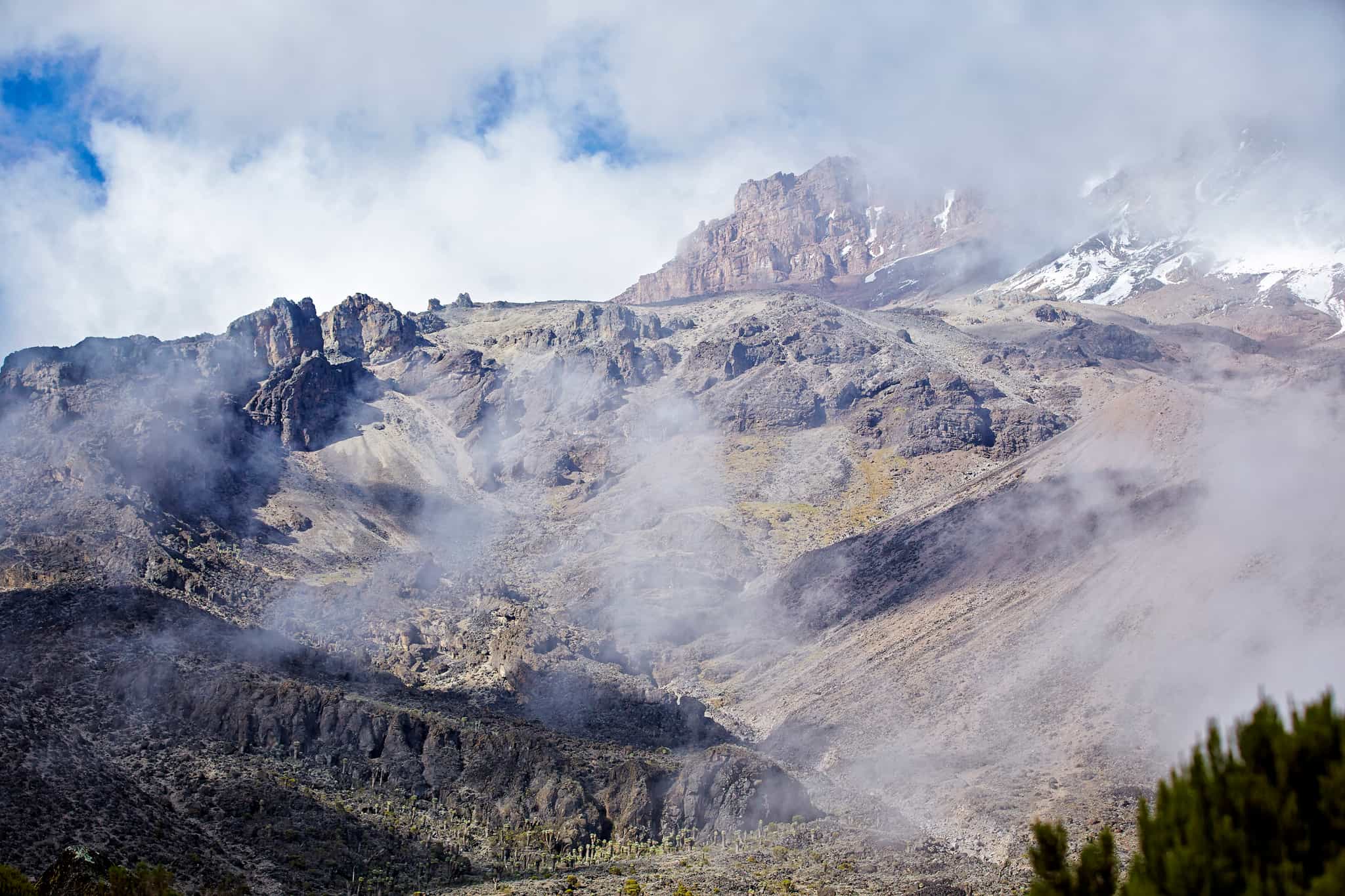
Hiking
Today is another important acclimatisation and contingency day to boost your chances of summit success. After breakfast, follow a steep ridge to the base of the Barranco Wall. This is a challenge both physically and mentally, as the wall appears higher than its 257m. Slow and deliberate steps are the trick to an easier scramble to the top (most hikers find it easier than anticipated, so fear not!). At the top, look out over the Heim Glacier and then wind up and down the Karanga Valley to reach your base for the night.
Day 6
Karanga Camp (4000m) to Barafu Camp (4650m)
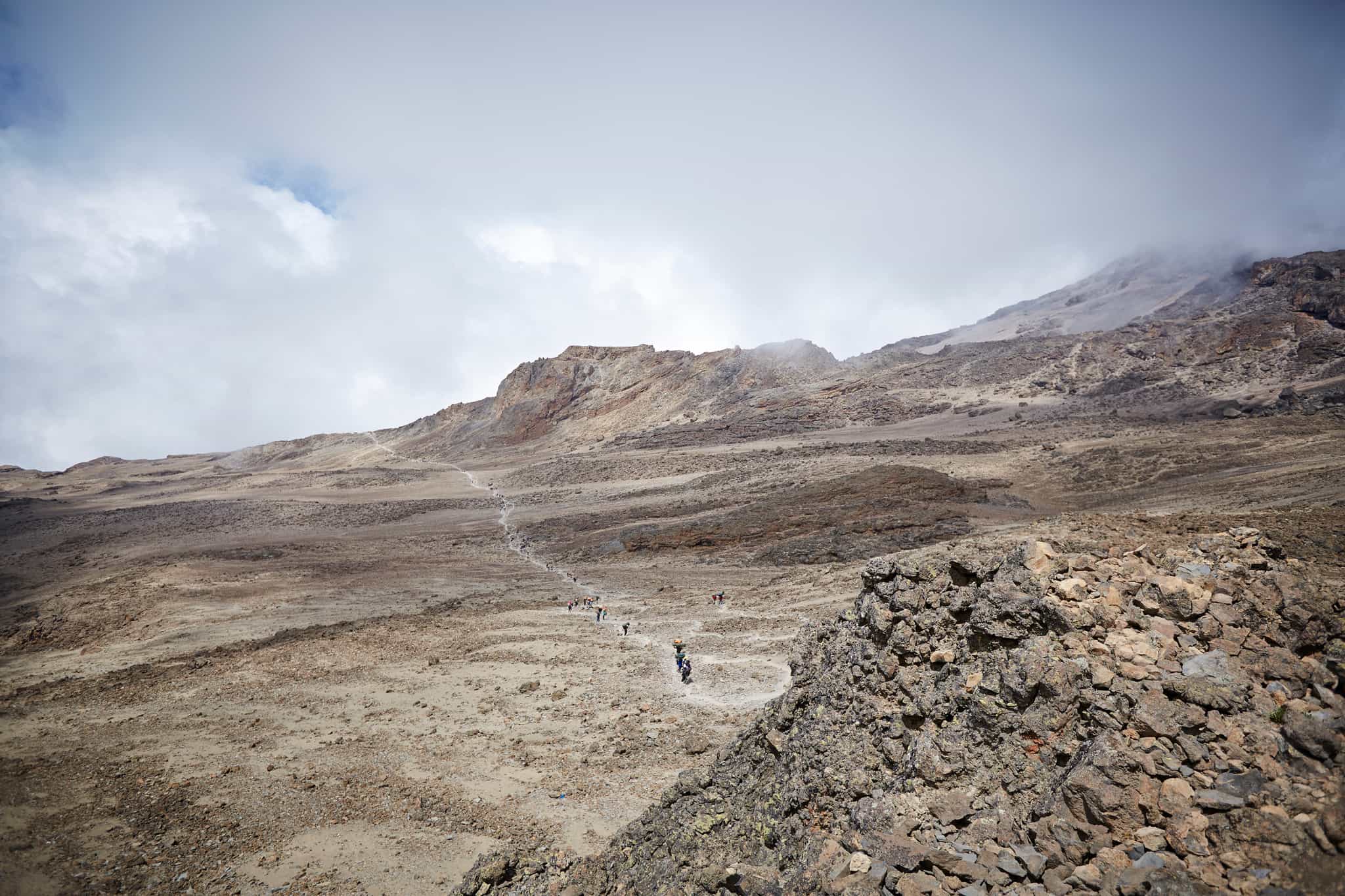
Hiking
Follow a short but steep trail through the ever-thinning air to Barafu Camp – your last stop before summit day. This camp is located on a rocky and exposed ridge, 'barafu' means 'ice' in Swahili. Have an early dinner, get yourself ready for the summit push in the morning and get some sleep. Nearly there!
Day 7
Summit day

Hiking
Set off in the dead of night to begin the most physically and mentally challenging part of the trek. With head torches on, ascend slowly through heavy scree towards Stella Point (5756m) on the crater rim, followed by a further ascent to Uhuru Peak (5895m) – the highest peak on Mount Kilimanjaro, the highest point in the whole of Africa and possibly your greatest trekking accomplishment. After a rest and some photographs, begin the long descent over dusty terrain forged by volcanic ash, eventually dropping back down into moorland as you reach Millenium Camp (3800m) for a well-deserved rest.
Day 8
Descend from Millenium Camp (3800m) to Mweka Gate
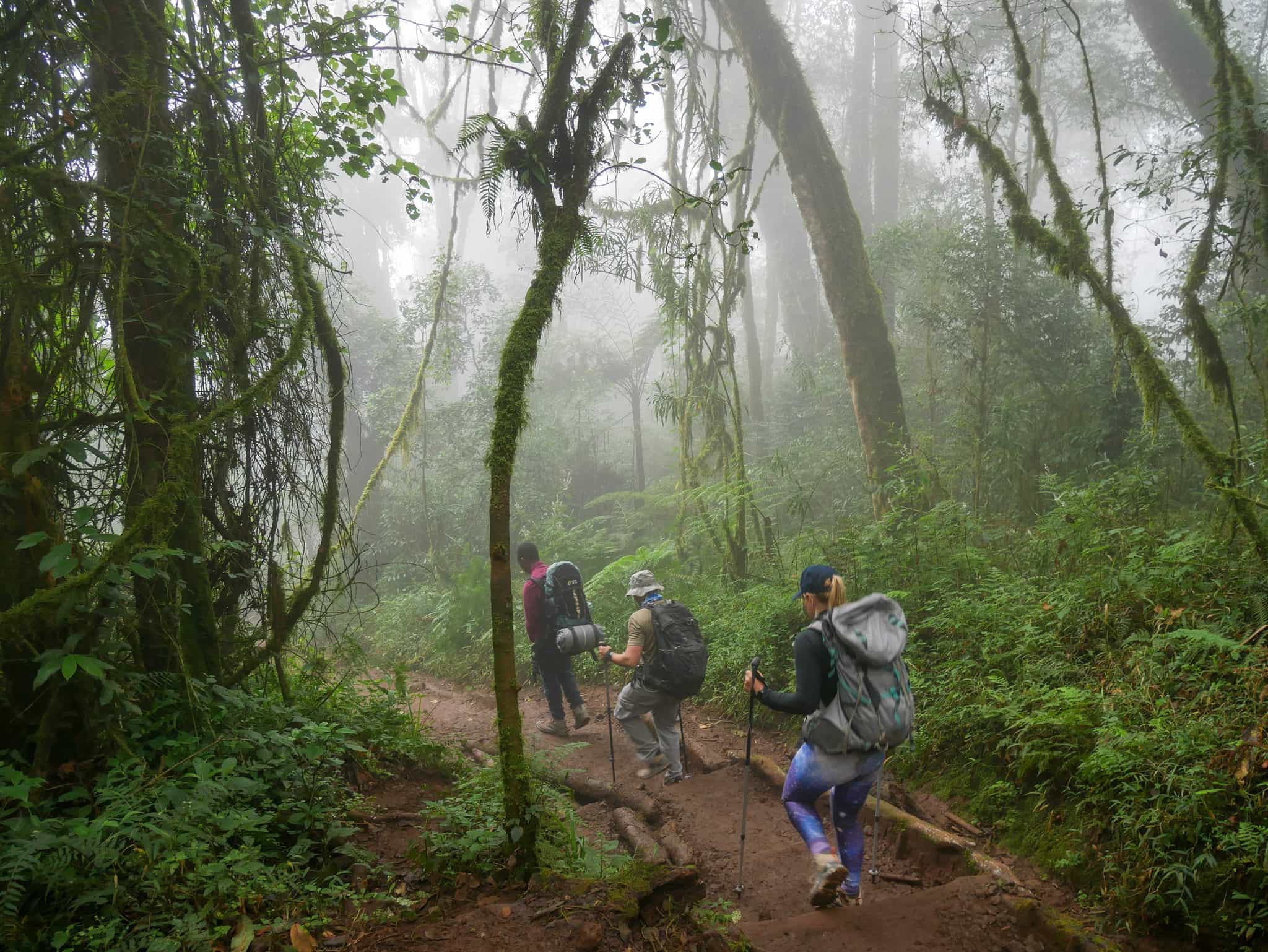
Hiking
Continue your descent to the Mweka Park Gate through lush forest – eyes peeled for fluffy black and white colobus monkeys as you reach the lower elevations. The weather here will be significantly warmer making the terrain wet and muddy so have your gaiters and trekking poles handy. When you reach the park gate, you’ll collect your summit certificate before driving back to your hotel in Moshi where you can enjoy a hot shower and celebrate your adventure. Following your trek, there will be a tipping ceremony for the crew who helped you to scale the mountain – please see the FAQs below for more information on this important local custom.
Day 9
Time to head home
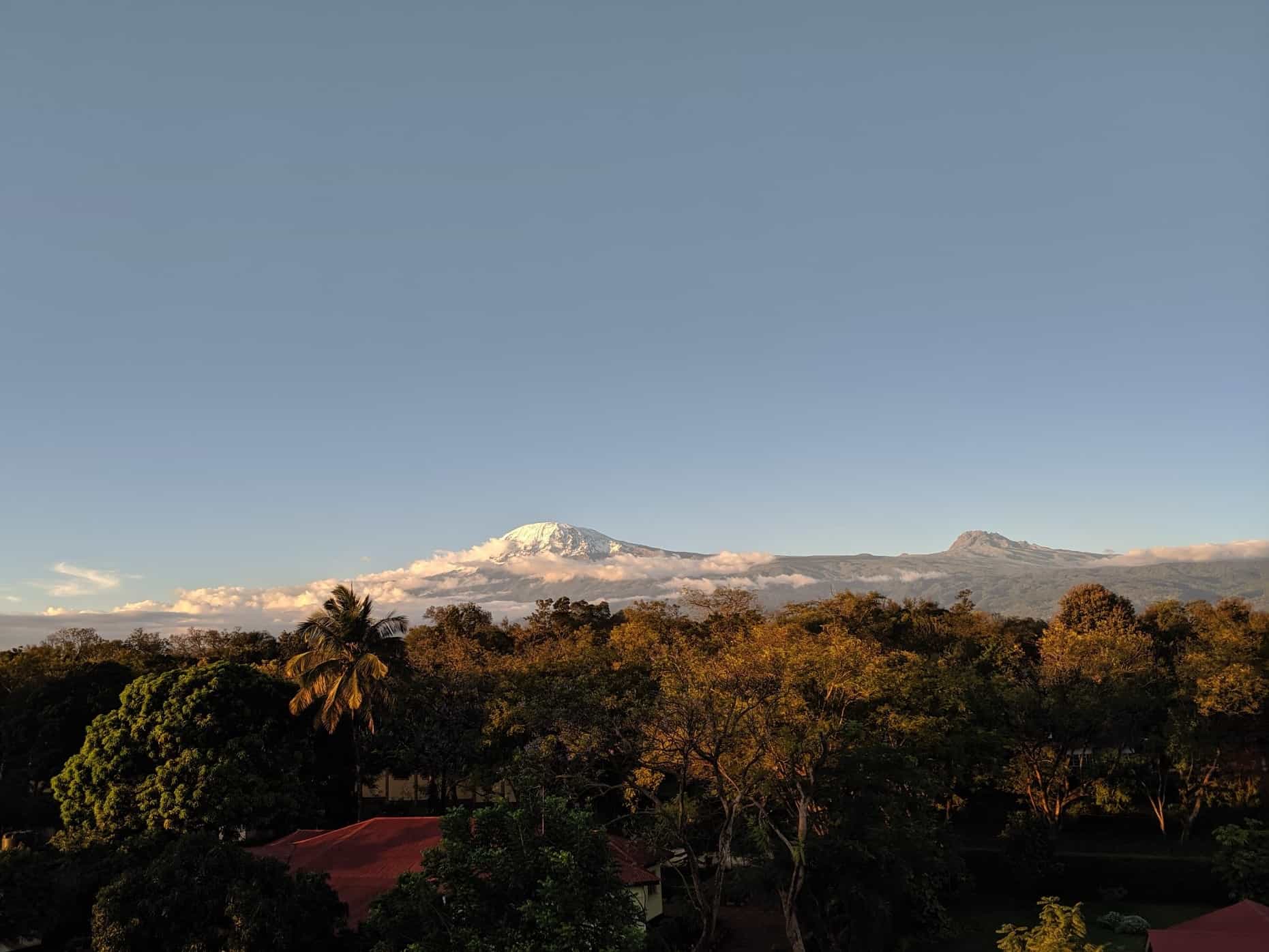
Enjoy a relaxed breakfast to mark the end of a remarkable trip and then head back to the airport, or continue your adventure in Tanzania.
The Area
Logistics
Starts
Kilimanjaro Airport
Any time on Day 1
Ends
Weru Weru Rover Lodge in Moshi or Kilimanjaro Airport
Any time on Day 9
Transfers
Your adventure begins at Kilimanjaro Airport (JRO) where your driver will be waiting for you outside the Arrivals area. Alternatively, if you’re already in Tanzania, your host can arrange a pick-up from any point upon request (not included). Your adventure ends with an overnight stay at the Weru Weru Rover Lodge in Moshi; from here you may decide to continue your adventure in Tanzania or ask your host to arrange an airport transfer for any flight departing that day. The airport transfer takes around an hour.
Airport transfers are included in the price if you arrive on Day 1 and depart on Day 9. For those arriving early or wanting to stay on longer, extra nights at the hotels and airport transfers can be arranged with your host at an additional cost. Please see Optional Extras for more information.
Travel options
There are frequent flights to Kilimanjaro (JRO) from major airports across the UK and Europe.
Day 1
Breakfast
Lunch
Dinner
Day 2 – Day 7
Breakfast
Lunch
Dinner
Day 8
Breakfast
Lunch
Dinner
Day 9
Breakfast
Lunch
Dinner
What is the food like?
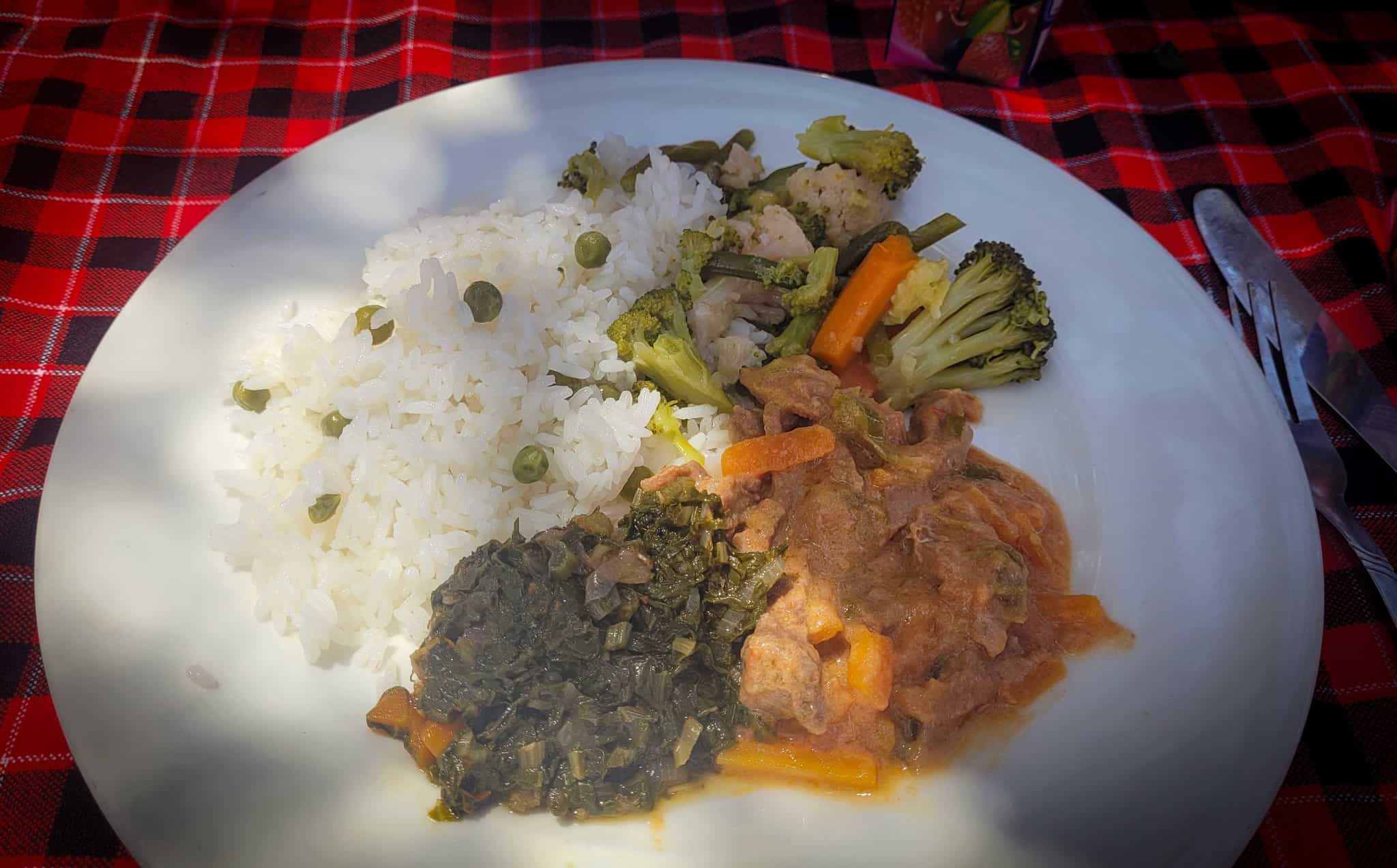
Throughout your trip, a team of experienced chefs will cook and serve you nutritious meals. Breakfast will usually be some combination of fruit, cereal, porridge, eggs, bread, French toast, pancakes, sausage, bacon, tea, coffee and hot chocolate. Lunch will be a mix of vegetables, fruit, boiled egg, meat cutlets, various sandwich options (egg/cheese/tomato/tuna/meat/peanut butter), macaroni and meat sauce and bread. Dinner, meanwhile, will usually consist of soup, bread, salads, rice, pasta, potatoes, roast or fried chicken, beef or fish, curry, mixed vegetables, lentils, fruit salad and fruit with custard. On summit night, you’ll enjoy a midnight snack with juice, soup, hot chocolate, tea or coffee and biscuits, and when you return to base camp, a nice meal will be waiting as a reward all your hard work. If you have any special dietary requests, let your host know in advance and they will do their best to accommodate them. Vegan and vegetarian diets can be fully catered for.
What is the accommodation like?
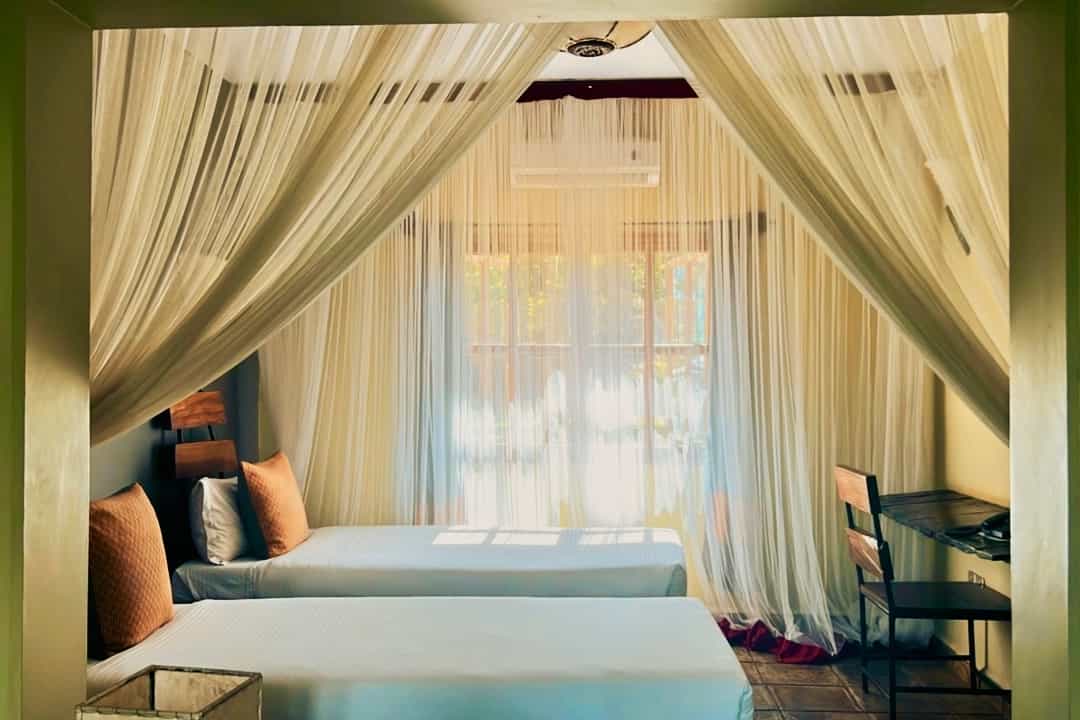
Moshi
You'll spend your first and last nights of the trip in a twin-share room at Weru Weru River Lodge, located on the quiet outskirts of Moshi Town around 30km from the airport. Rooms are modern and comfortable with ensuite bathrooms and free WiFi. Some departures also use the Panama Garden Resort or Kilimanjaro Wonders Hotel which are located more centrally in Moshi.
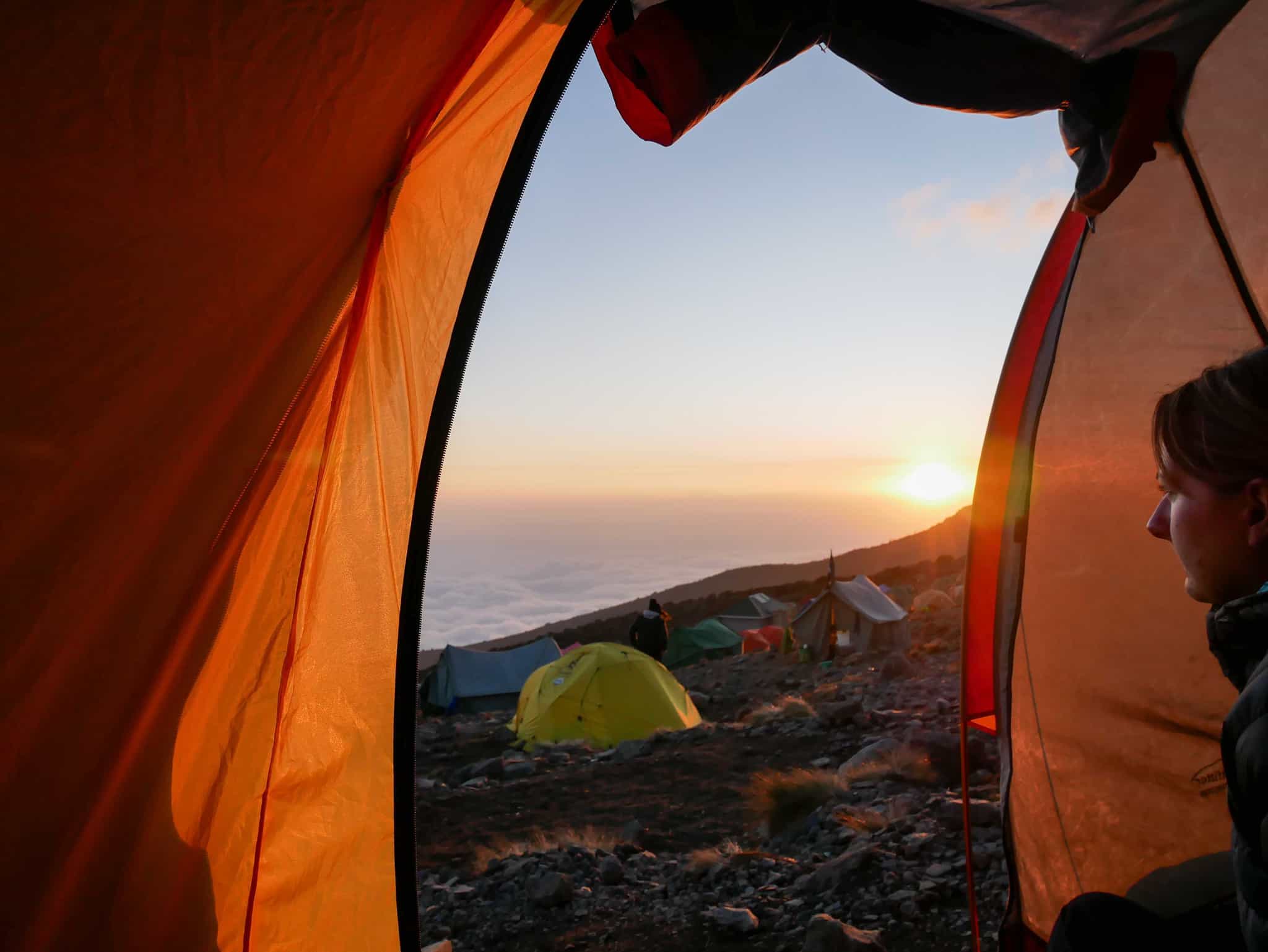
Along the Machame Route
During the trek, you will camp at a number of sites along the Machame Route in twin-share tents, with camping and cooking equipment provided (you'll need to bring your own sleeping bag, or hire one, though). You'll also have a mess tent where you'll be served all your meals. Your team of porters will set up and break down camp for you each day, so you can save your energy for the trek.
There are now several permanent public ‘long-drop’ toilets in most of the camps along the Kilimanjaro routes. In addition to this, when at camp, your porters will set up a private portable and flushable toilet especially for your group complete with washing station and bin. In between camps, you will need generally to find a convenient boulder or shrub. Whilst this is all part of a wilderness adventure, it can have a negative impact on the surrounding environment, if not practiced carefully.
Upgrades
For solo travellers wanting their own space, there is the option to upgrade to a private room or tent if you would like to do so, subject to availability. See Optional Extras for prices.
This trip has been rated as Challenging
An epic challenge! This trip has been rated as challenging due to consecutive days of around 6 or 7 hours trekking with plenty of elevation gain at high altitudes. Mount Kilimanjaro (5895m) isn’t a technical climb, but the route can be steep and rough underfoot. It is also important to note that trekking at altitudes above 3000m is more demanding on the body than walking at low elevations, and this will be the main challenge. Your guide will set the pace and as with all altitude treks, the theme is ‘pole pole’ (slowly, slowly in Swahili) to help you adjust to the high altitude.
Given the nature of the trip it is necessary to have some previous hiking experience under your belt. We would recommend working on your hill fitness over several weeks or months before attempting this climb. This would involve developing a reasonable base of cardio and strength fitness combined with some specific hiking preparation in the hills. Think of a few weekends of back-to-back walking days with as much up and down as you can fit in, if you want to make it harder carry a heavy backpack! This preparation will set you up to get the most out of your trek and enjoy yourself on your adventure!
This trip follows the Machame Route over 7 days on the mountain, however Much Better Adventures also offers you the chance to climb Kilimanjaro via the Lemosho Route which spends 8 days on the mountain or the Rongai Route which spends 7 days. See the FAQs below for more details on the individual routes.
What will I need to carry?
Your porters will carry your main kitbag allowing you to only have to carry a day pack with your basic kit for each day of walking. There is a limit to the weight that the porters can carry and therefore your main kitbag must be no heavier than 20kg. If you wish to bring more than 20kg it is best to arrange another bag and an extra porter charge will apply.
It's possible to climb Mount Kilimanjaro all year round, however, the months outside of the rainy seasons are more desirable. The best climbing months are from December to March and July to October. The best weather is usually at the beginning of the year from January to March, which are also typically the warmest and driest months. Thanks to Tanzania’s proximity to the equator, the region doesn’t typically experience the extremes of winter and summer weather you might expect and instead has dry and wet seasons. The local weather conditions on Kilimanjaro can be somewhat unpredictable (to say the least) and rainfall varies from 2100mm per year in the rainforest belt to less than 120mm per year in the summit zone. Daily temperature changes are also unpredictable when compared to normal weather cycles, and are largely dependent on the altitude.
Great experience overall! William was
Great experience overall! William was our guide for this 7-day hike, and with his team they have one goal: get you to the summit of Kilimanjaro, safe and through the most comfortable as possible hike.


Must Do
Excellent climb and really well-organised. The team couldn't have done much more for me so I felt safe (and well-fed!) at all times. Very flexible to my requirements - I managed to shave 2 days off the total time of the trek and get it done quicker. Overall a must-do adventure, challenging at times but achievable to anyone.



Kilimanjaro Mechame 2024
I need to tell everyone that this was a superbly organised and executed adventure. Iza run the team and catered for every need and change. Nothing was too much trouble from transfers to food requirements. Hussain was the team leader on the mountain and he delivered 100% in every way and got our group of 9 acclimatised. We all submitted. The guides, David, Schaffi were amazing and became friends. My tent porter Amosi was the most amazing person you would ever meet. We had 32 staff to 9 climbers. I can't recommend this trip with these guys any more passionately. It was perfect in every respect.





Mt Kilimanjaro
Fabulous trip and so well organised

Great Adventure, Great Team!
The team behind this trip was amazing and did their best to give everyone a great experience and to male it up the mountain. We all succeeded - but would not have done so without the great support from the local team. Beautiful scenery, good food and a lot of sweat, tears and joy. Glad I did it!




Harder than you think
What an amazing experience but it's harder than you think. We did the Everest base camp tour and this was far harder we really had to push our limits. But with a great team behind us helping us, checking our health and pushing us to keep going we made it to the top. The team or porters and guides were great kept us fed healthy and well hydrated. So happy when they provided a hot water bottle when we got higher as it got so cold. Tanzania was amazing and I'd recommend going on the safari after, then we went to Zanzibar had a few days on the Southwest chartered yacht (highly recommend) and a week relaxing on the beach. Overall this was an excellent trip.



Amazing Experience!
We absolutely loved our experience! The crew was amazing and took great care of us! Recommend that you ask for Hussan and Coleman as guides when you book. This was a bucket list experience for us and fully lived up to our expectations!



The trip from the get
The trip from the get go way amazing the team are very Knowledgeable and friendly and you can obviously see they are very passionate about what they do and where they work. Our lead guide Andrew is obviously a very well known and respect guide on the mountain with a wealth off knowledge and Curiosity we spent most off the trip talking and exchanged conversations about our cultures amd lifes he was also very careing for kili fighters/ porter's haveing stopped a few time to check on some from other groups and giveing frist aid to one injued porter. The food tasted amazing and was in Plentiful supply though out the trip. The whole crew wanted nothing more then us to have a Successful summit and celebrate with us once we have summited. Over all the hike isn't hard but the last day off climbing you do need to lock in mentally to push though the cold and the dark and lack off air but it is well worth it once you reach the top.
Perfect
The whole team were amazing. Great atmosphere hard work. Thanks


Great Trip, I missed my
Great Trip, I missed my flight going out and contacted much better adventures to advise them they helped getting an additional flight and also contacted the Team in Kilimanjaro to let them know the situation. Great customer service and a well organised trip, a truly memorable experience. Would highly recommend Much Better Adventurer.
Title: Conquering Kilimanjaro: A Dream Made True by Much Better Adventures
Review by Timothy Roosen
Embarking on the Much Better Adventures’ Kilimanjaro climb via the Machame Route was an unforgettable experience that has set a new bar for my future travels. This wasn’t just a climb; it was a transformative journey, one that challenged my limits and expanded my understanding of our world's natural grandeur.
The summit push to Uhuru Peak was the crescendo of this adventure. Standing at the peak with dawn breaking over the horizon was a transcendent experience. It was an emotional summit, where the bonds forged along the way and the raw beauty of the surroundings created a memory etched in time.
The magic of this journey was significantly enhanced by the incredible team of guides and porters. Their professionalism, expertise, and genuine warmth turned a daunting challenge into an achievable dream. They were the heartbeat of this adventure, ensuring our safety, cheering us on when the going got tough, and sharing insightful stories that enriched our understanding of local customs and the mountain's history.
Their support transcended the usual client-crew relationship; they became our mentors, friends, and silent heroes who carried the spirit of Kilimanjaro in their unwavering smiles and encouragement. The success of our climb was a reflection of their dedication. They are the unsung champions of the mountain, and the dream of reaching the summit was realized through their remarkable efforts.
Much Better Adventures also demonstrated a laudable commitment to sustainability. Their respect for the environment and the local community was apparent in every aspect of the climb, from their Leave No Trace ethics to their engagement with local staff. It’s clear that they are not just running trips but are also invested in the conservation of these magnificent landscapes and the well-being of those who call it home.
Health and safety were top priorities on this trip. The guides conducted regular health checks and were vigilant about our well-being, ensuring everyone had the best chance to enjoy and complete the trek successfully.
In sum, the Kilimanjaro climb with Much Better Adventures was an epic adventure crafted by the hands of those who know and love the mountain most. The crew’s dedication, combined with the company’s responsible approach to travel, created an experience that was nothing short of extraordinary. For those who dream of reaching the roof of Africa, there is no better companion than Much Better Adventures. Their team doesn’t just guide you to the summit; they elevate the entire experience into a profound journey of discovery.
Rating: 5 stars
A great way to hike Kili



Would definitely book with MBA again, communication was excellent throughout. The team in Tanzania were outstanding, from ensuring you had packed all the correct gear at the start to the closing ceremony back in Moshi, which included a group lunch with all the team that got you to the top - a lovely touch. The trek itself was a magical and unforgettable experience. I felt very safe throughout, and the guides paced us perfectly to reach the summit for sunrise.
We made it! The local host team did a great job of making us feel as comfortable and confident as possible during our hike. The meals were varied and plentiful, the guides and porters were excellent company, and the small/extra comforts (of having a hot water bottle at night, a private toilet, extra porters during summit night) made all the difference! The whole experience can be quite emotional, and you're truly "stuck" on the mountain with each other for a full week, so it was also amazing to feel how you started to bond with the team. Thanks for an unforgettable experience!



Wow, this was such an adventure! The summit night is tough, don't underestimate that, but the guides do everything they can for you to achieve getting to the top. They are so attentive, knowledgeable and friendly. We had the best group to climb with and it definitely takes the whole team (26 of them!) for you to summit Kilimanjaro. When we booked we thought it would be pretty basic but we're surprised by the luxurious extras such as tea and coffee brought to your tent to wake up with, hot bowls of water to clean with in the morning, a portable toilet, a dedicated dining tent with 2-3 course meals which were always delicious. The company definitely look after their team with all the porters wearing suitable footwear (unlike some other companies porters we saw), paying a fair wage, and at the end of the climb we had a lunch and beers with the whole team to celebrate and personally give them the tips so you know it's going directly to them.

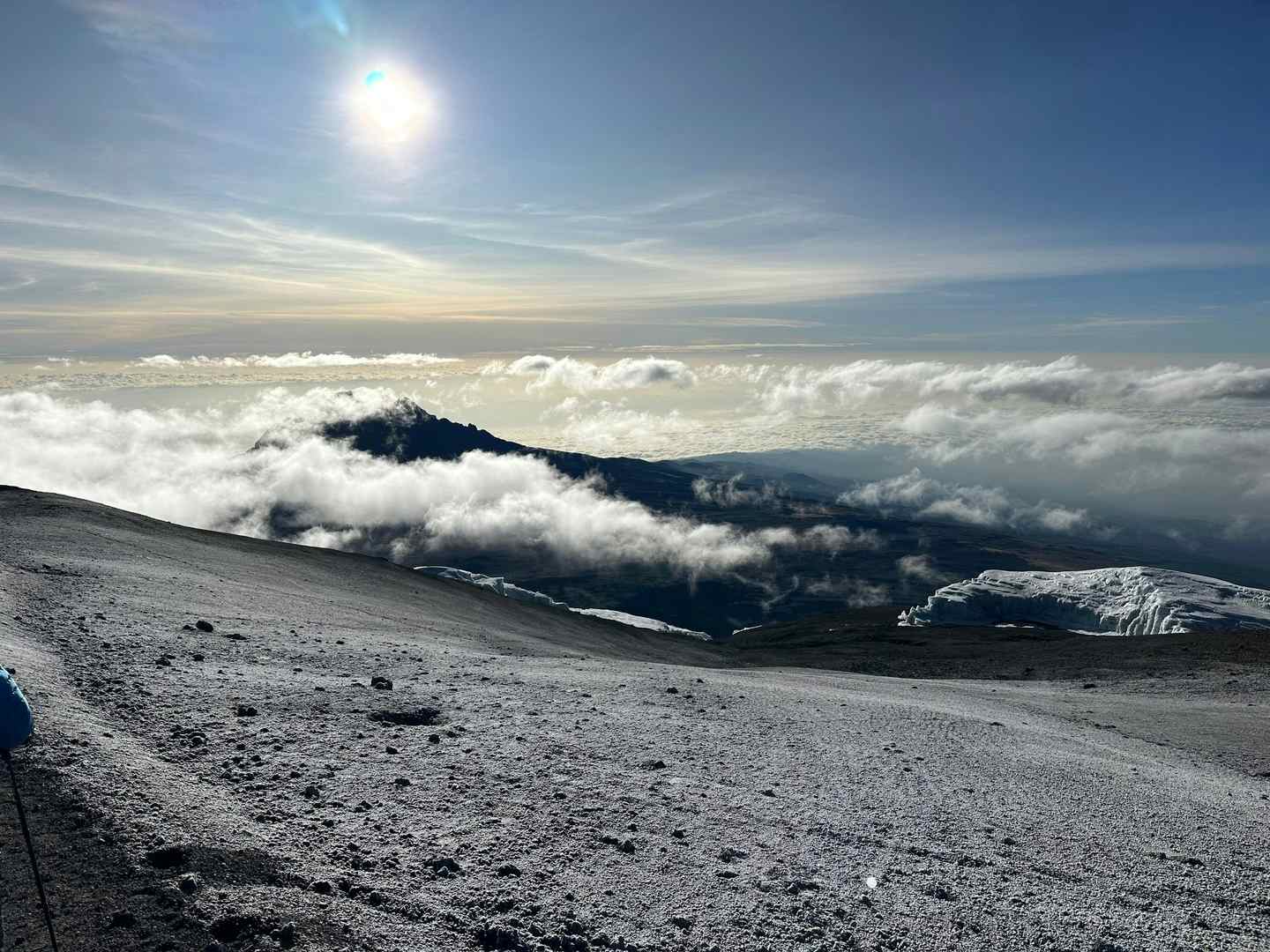
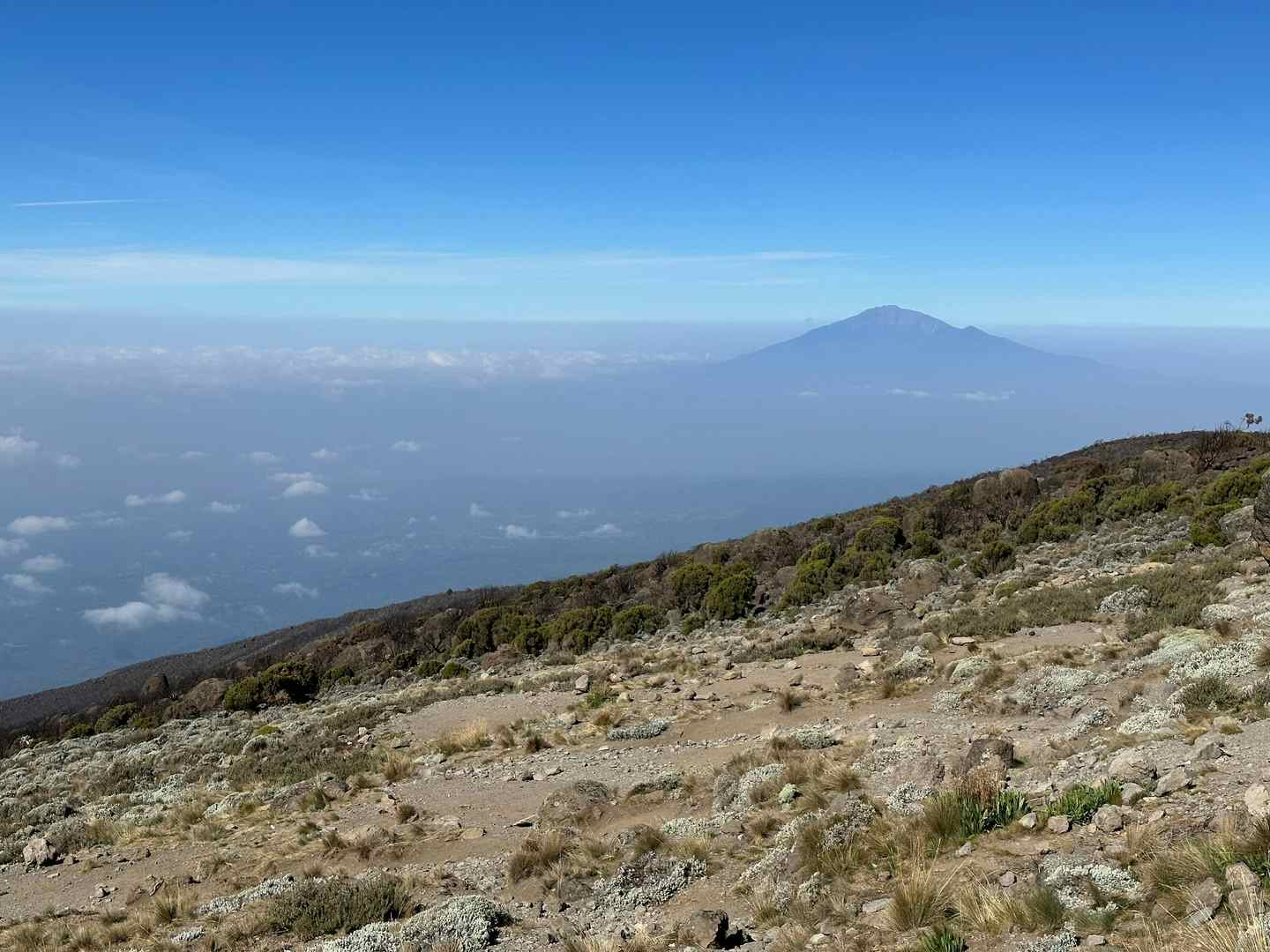
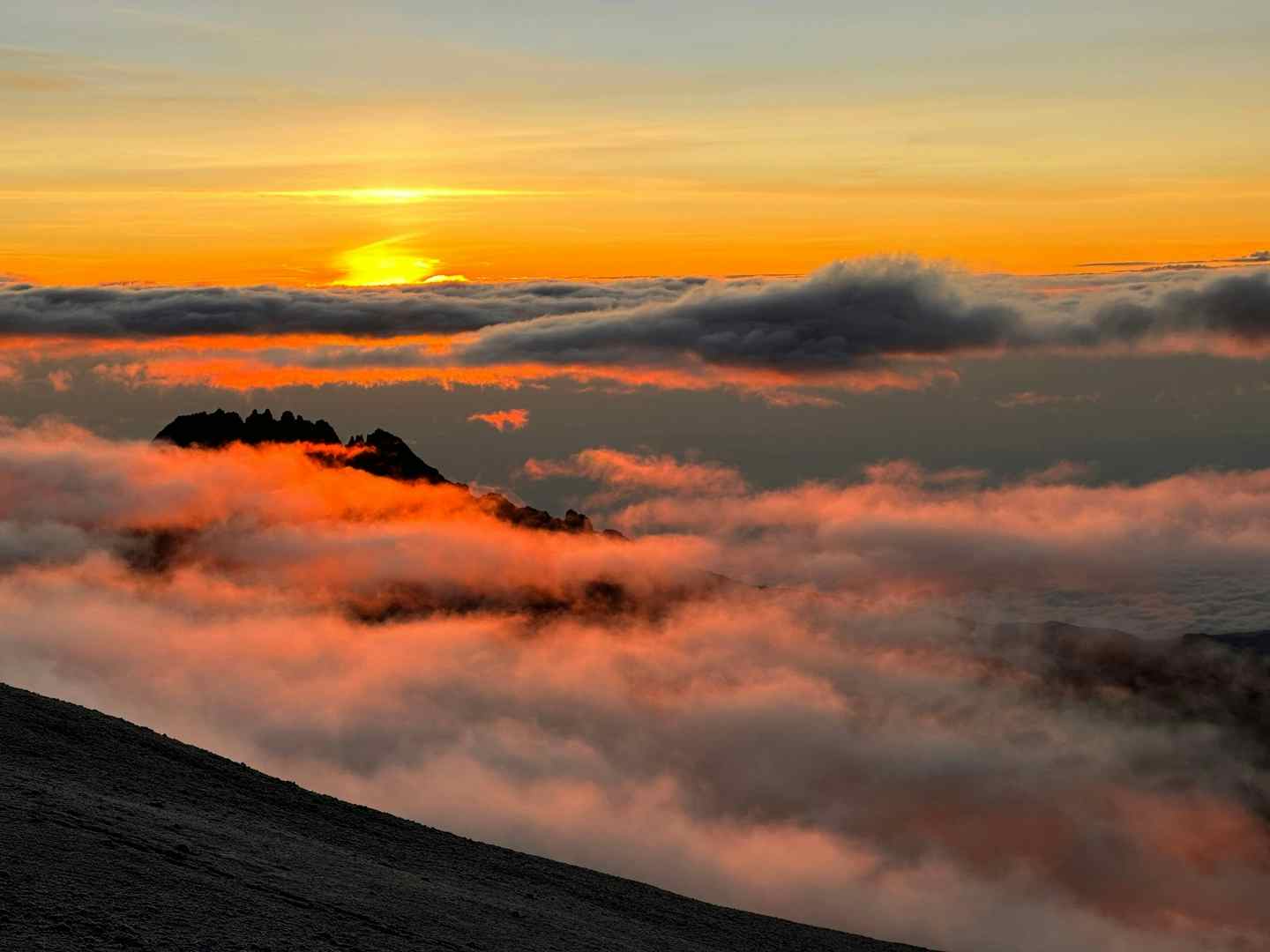
Absolutely loved the hiking group, all of the guides and Kili fighters who went above and beyond to keep us safe, well fed, and in good spirits with lots of singing along the way. The summit night was tough, mostly because of the thin air, but the sunrise at Stella Point was worth it and the whole trip was really fun and a great physical and mental challenge. I was surprised how good the food was. We didn’t go hungry but I recommend taking a lot of snacks for on the walks. I had mild headaches a couple of days due to the altitude. Definitely suggest taking painkillers. Camping was made as comfortable as possible with morning tea and hot water for washing. I’m not used to sleeping on a mat and would maybe take a blow up for next time to go alongside the thin mattress they provide.
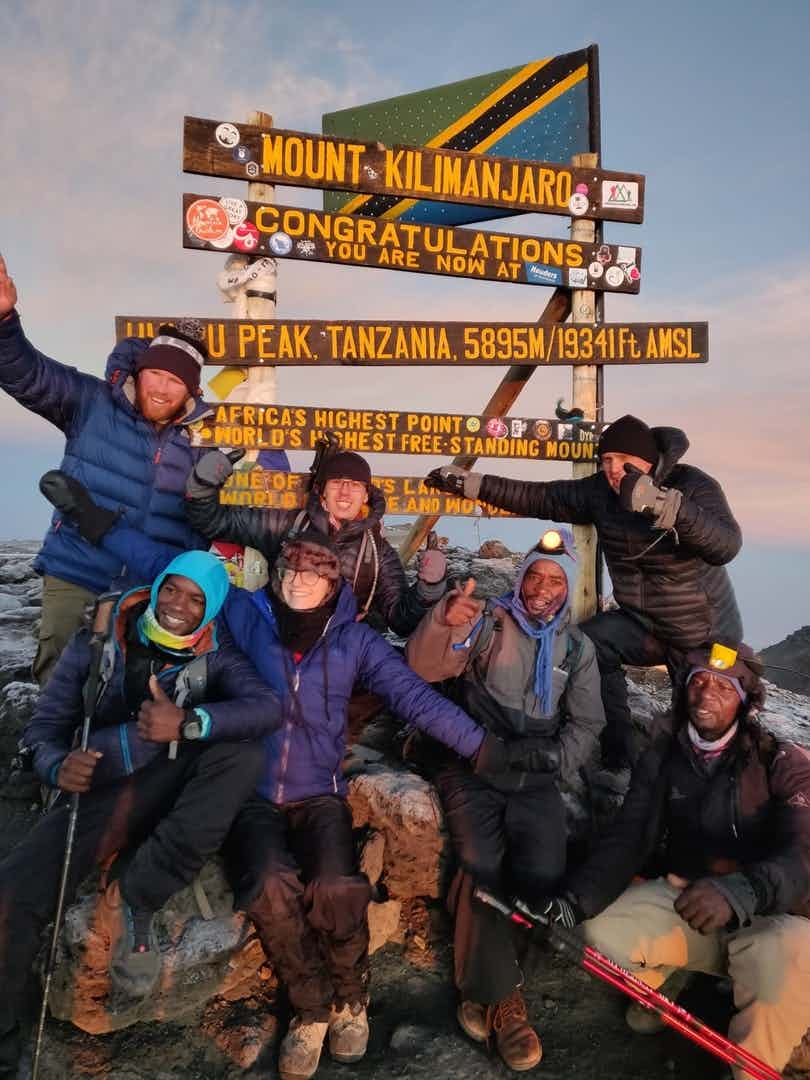
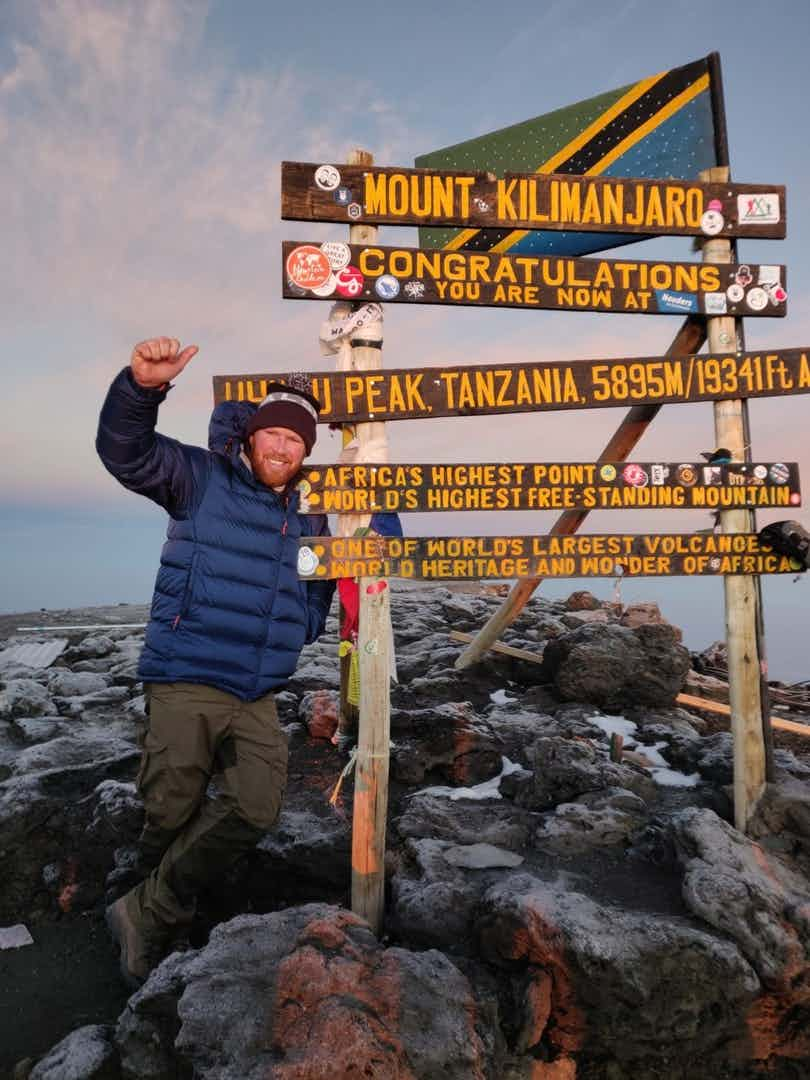
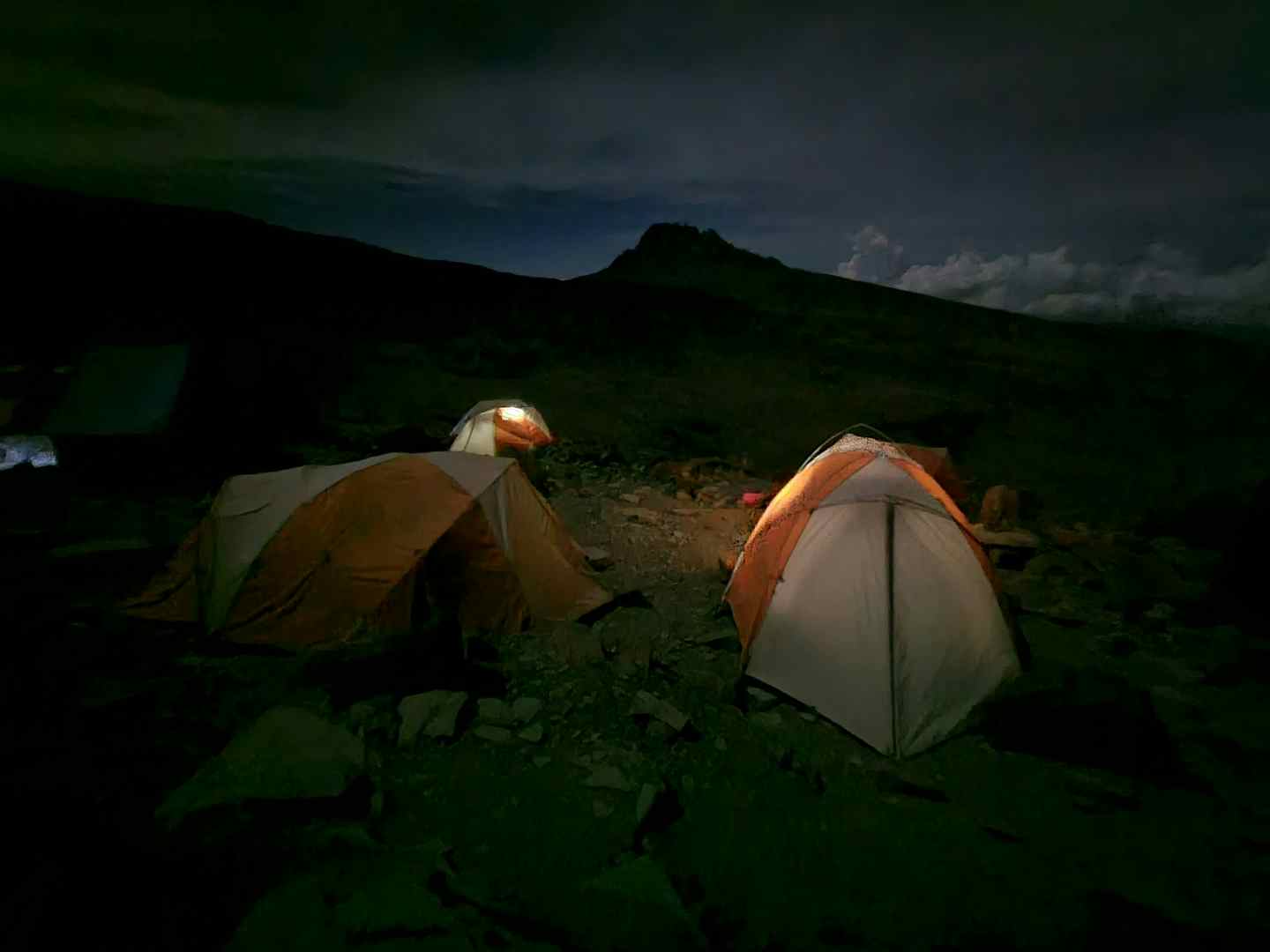
My first experience with MBA and I was impressed. As expected the trip is sub contracted out to a local well run company. Kili was much harder than I expected and if it wasn't for the team, crew and leaders provided I honestly think I may have failed. Trip of a lifetime
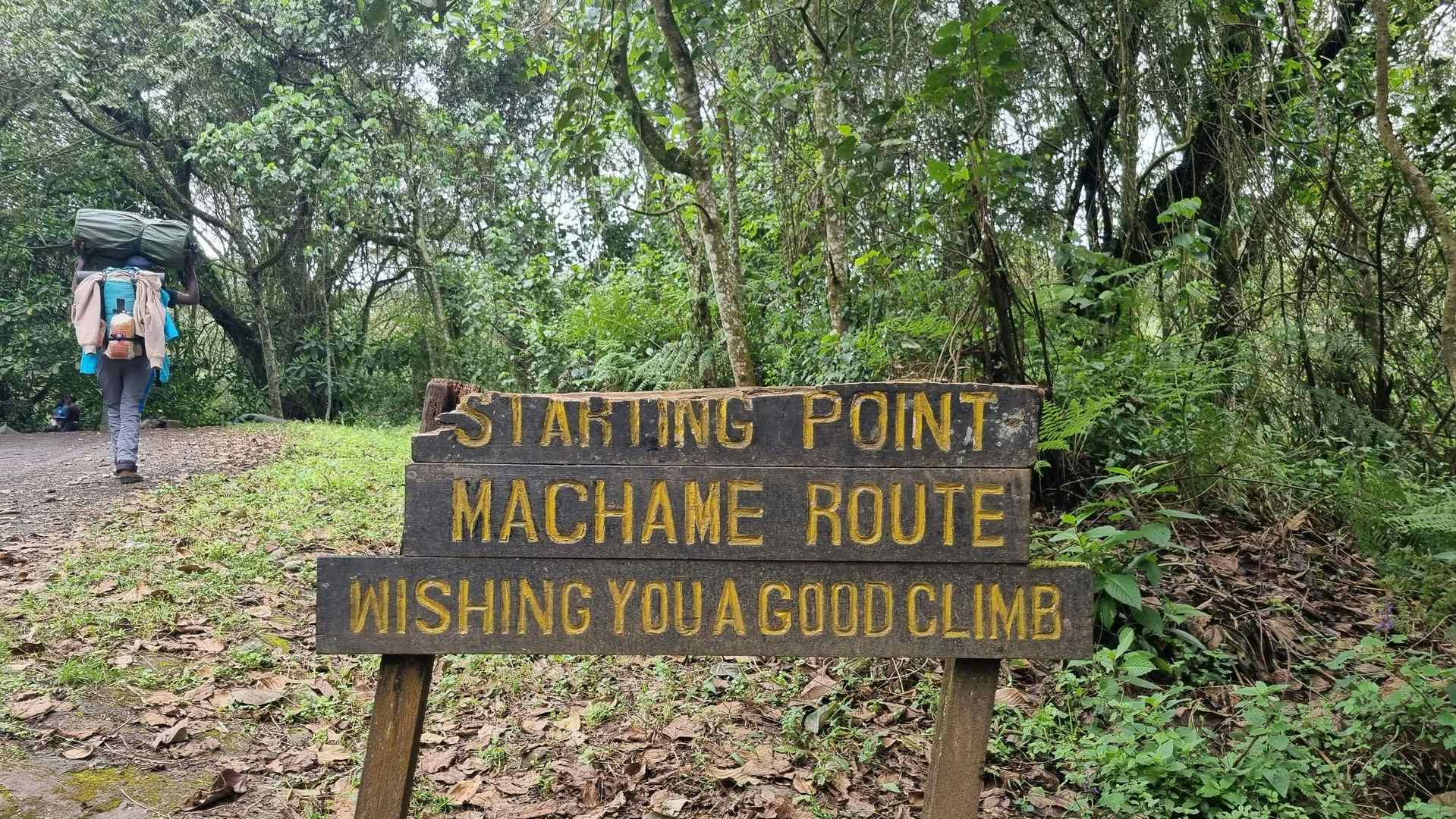
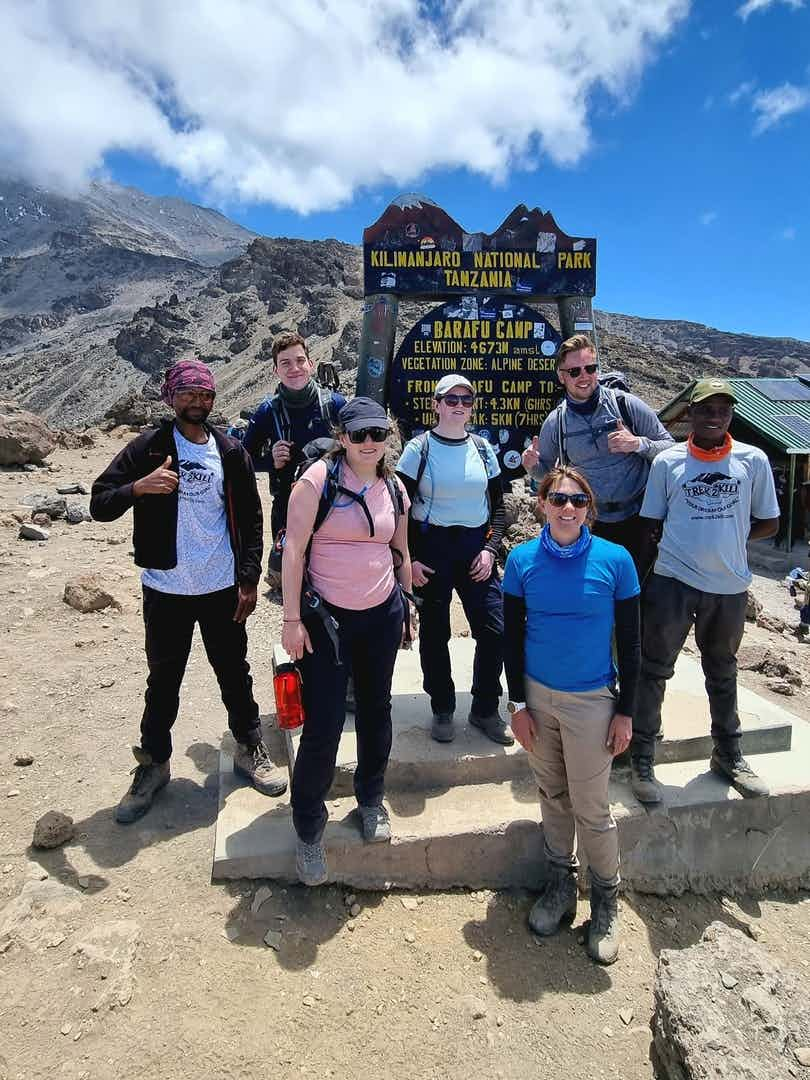
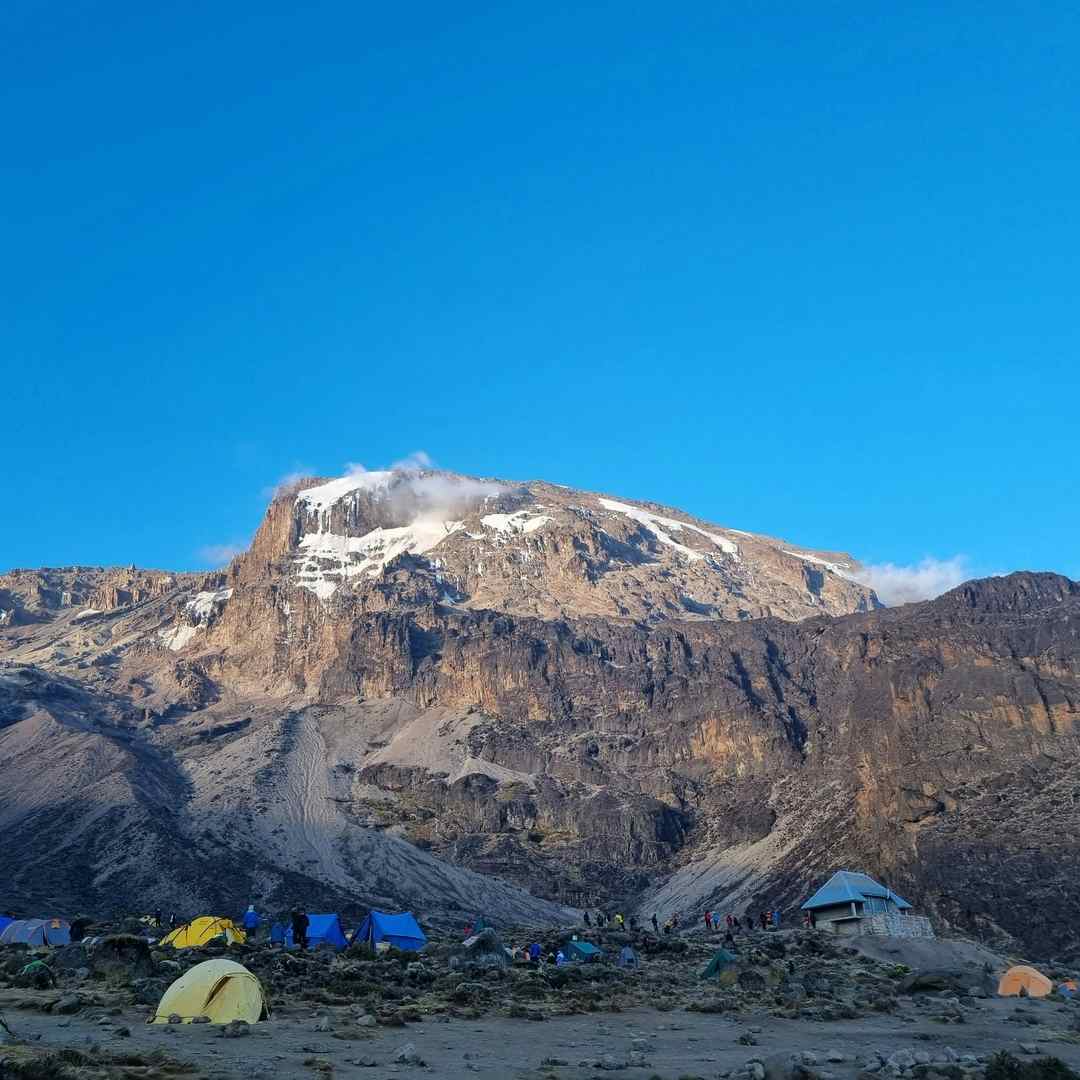
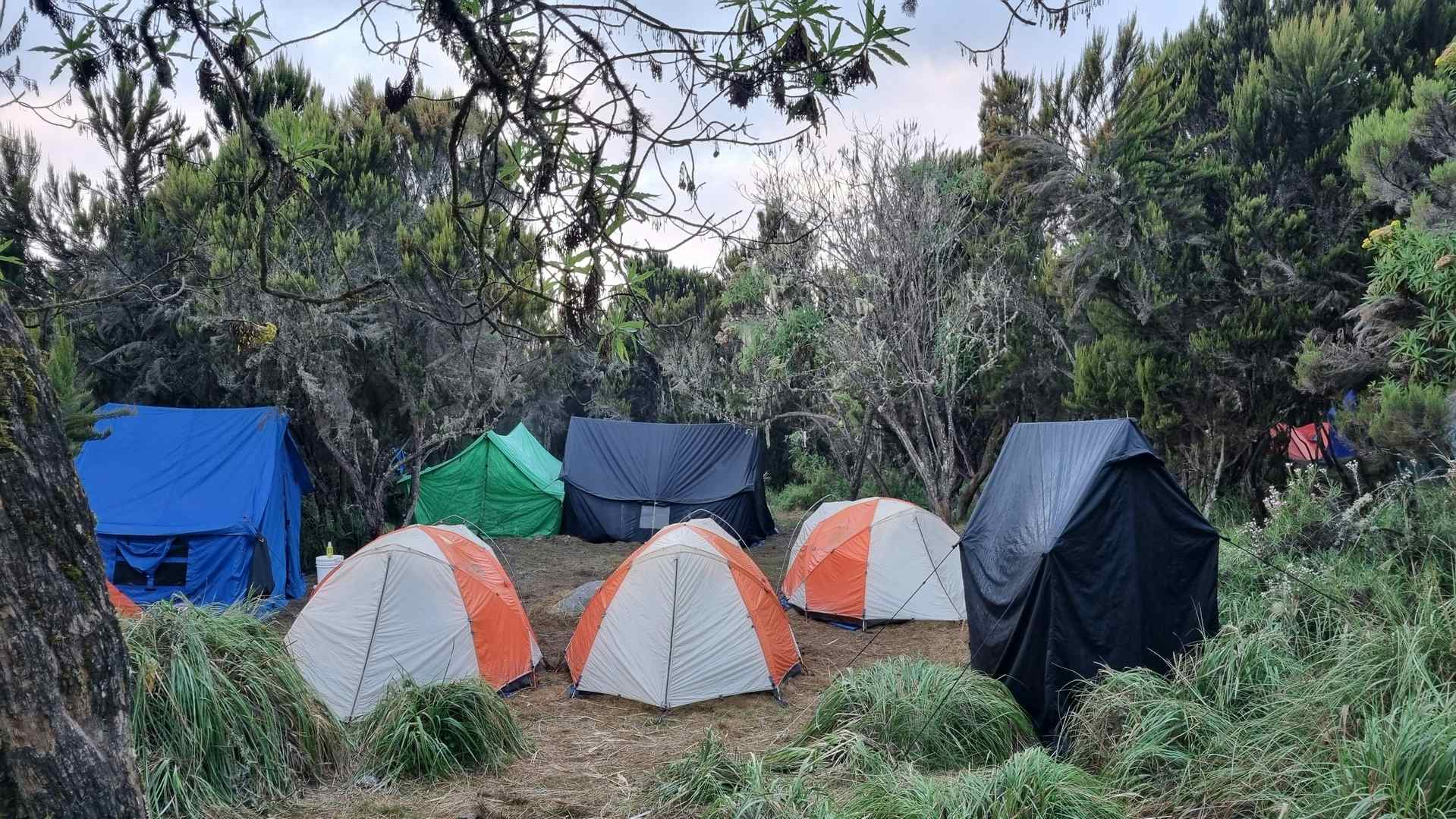
An unforgettable experience with an amazing crew! Thank you!
I had an amazing time climbing Kilimanjaro with the team. All the staff were fantastic and from tents to food to safety, the service they provided was excellent. My guide Stephen was super-knowledgable and a pleasure to spend 6 days hiking with! I highly recommend both the trip, as it is an unforgettable experience, and the company as they were great!
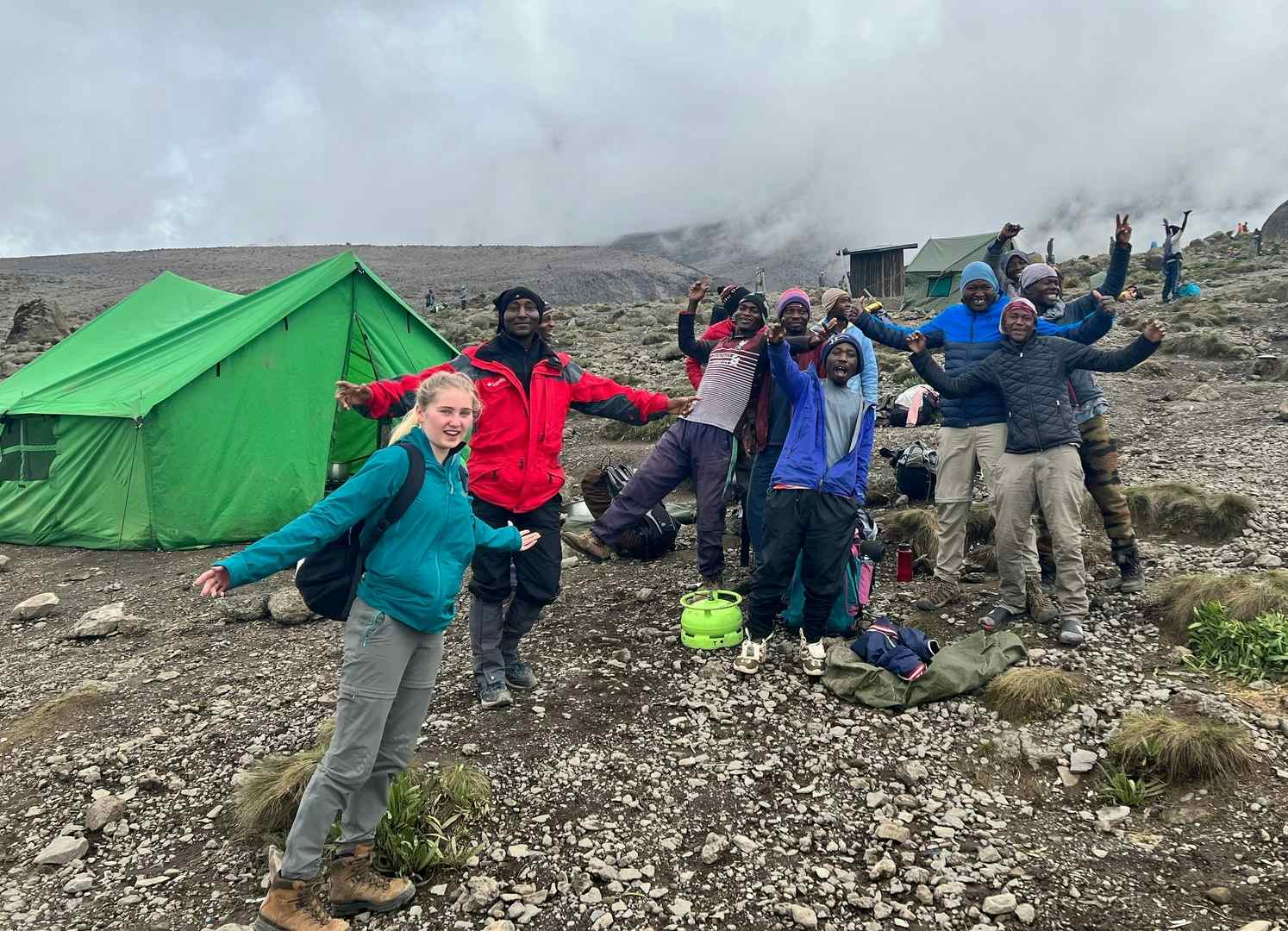
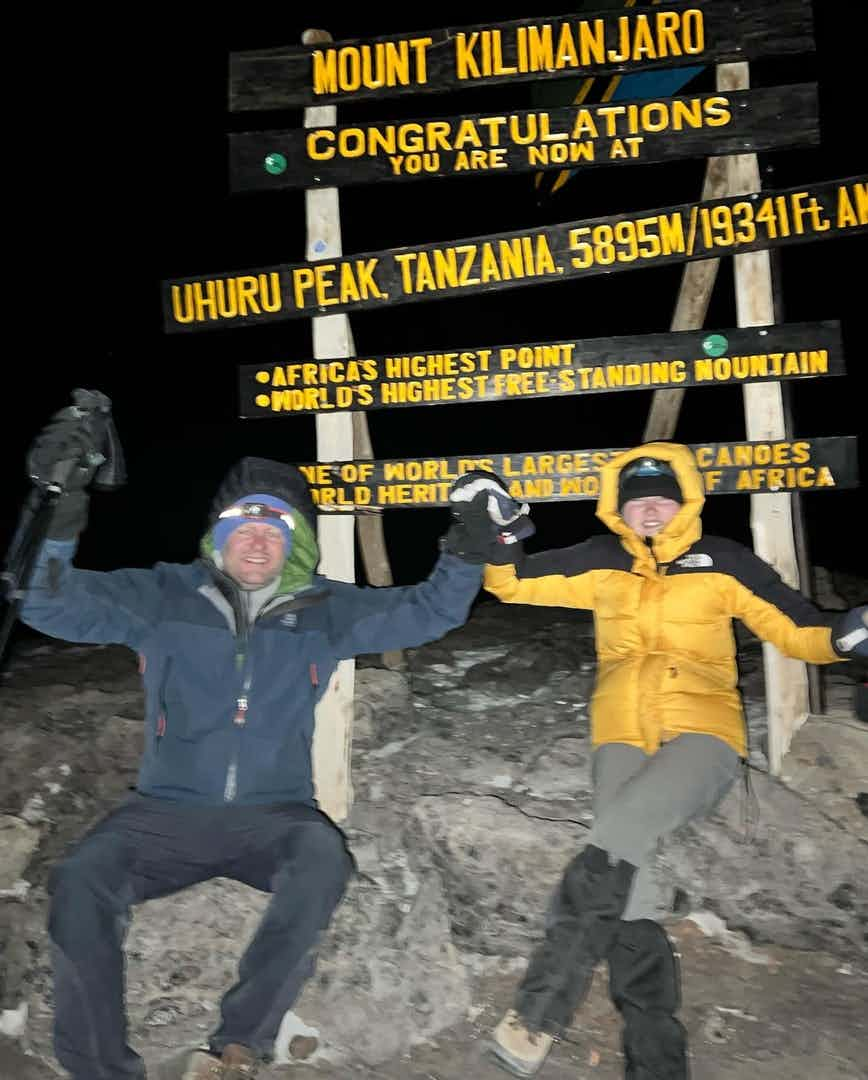
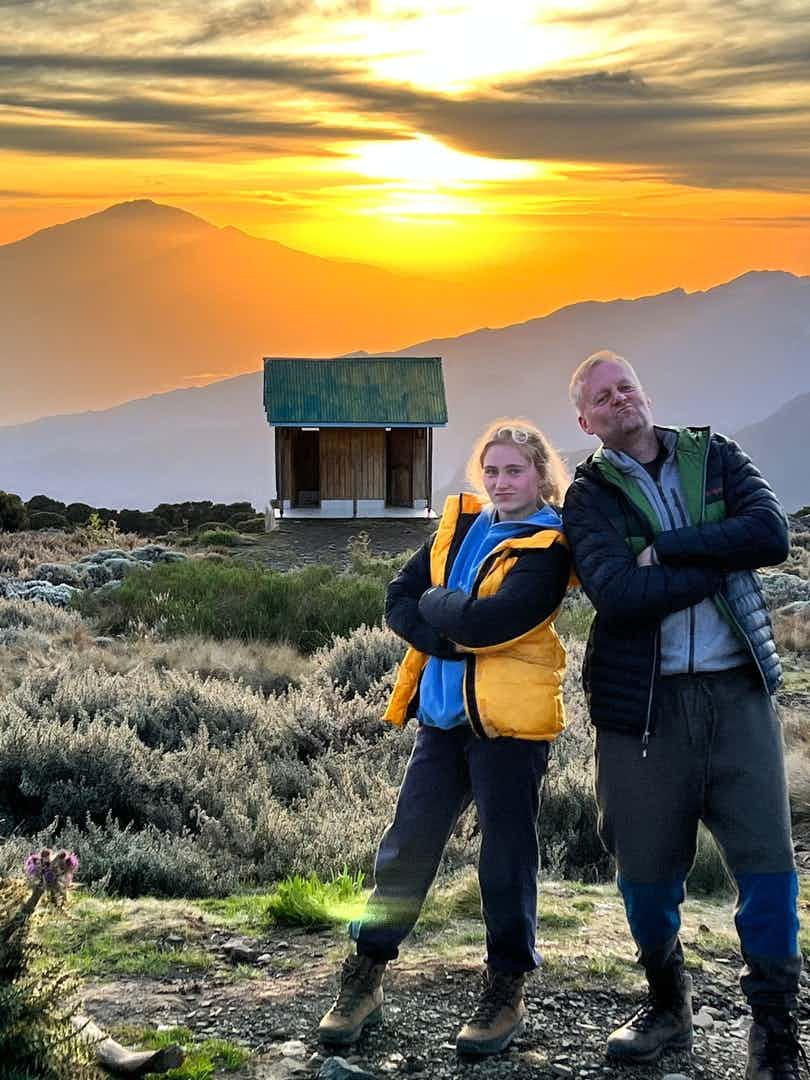
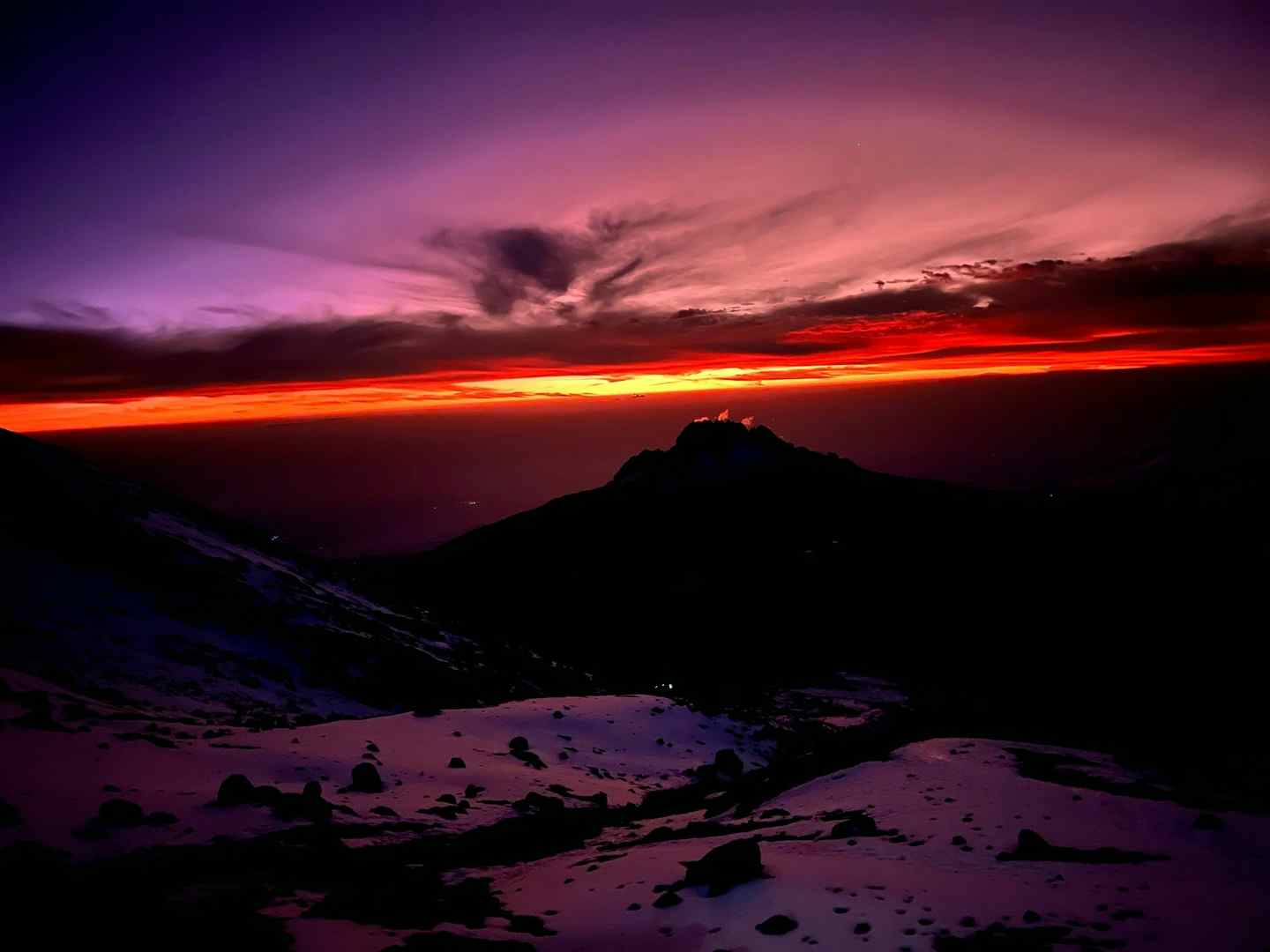
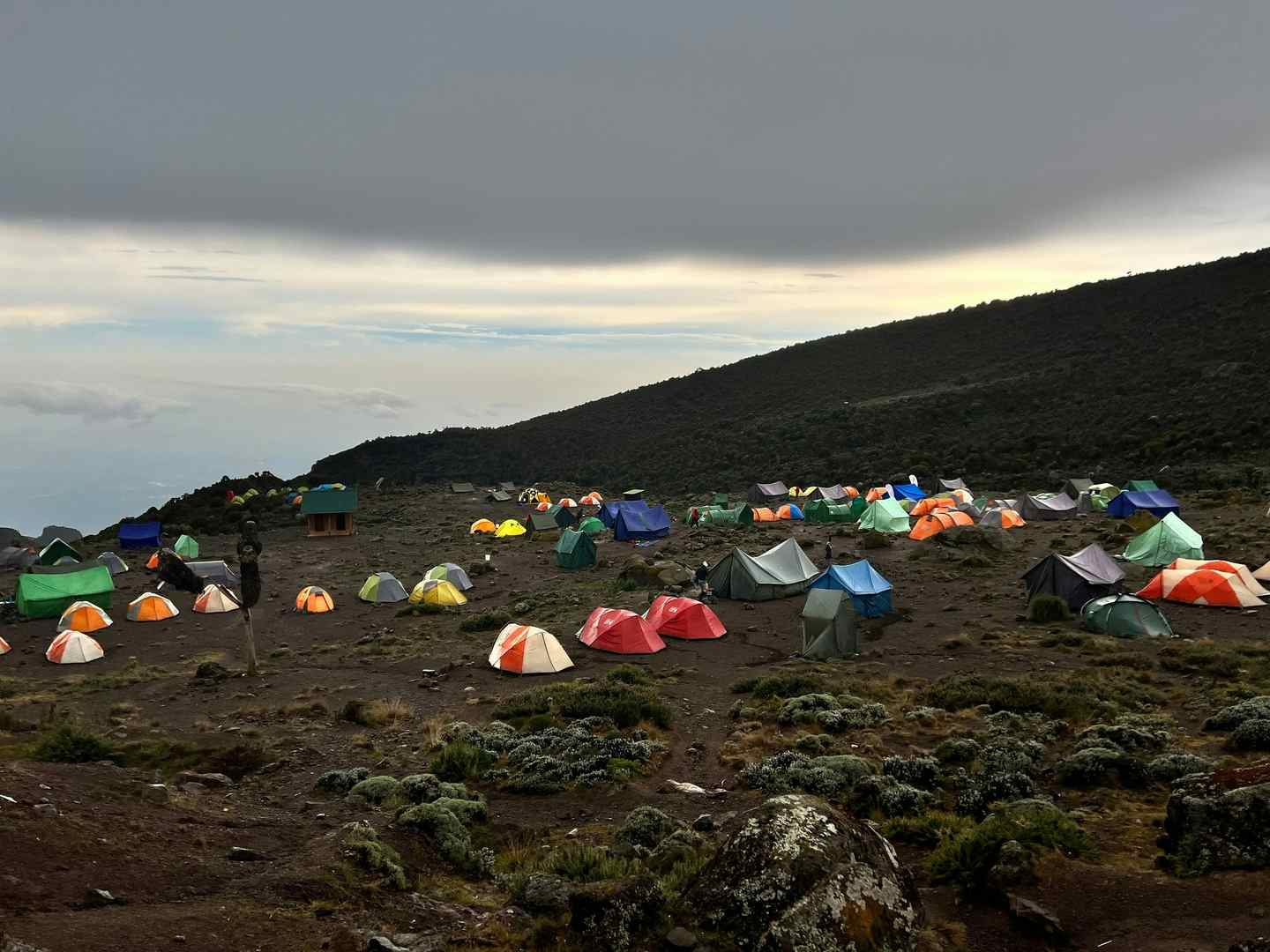
It was an amazing trip that was expertly planned. A once in a lifetime experience that was challenging, but fun and in the end rewarding! My daughter, who at 15 became one of the youngest persons to climb Kilimanjaro, and I had a great time. It was really awesome to pass through the different climate zones and their terrains and our team of 12 consisted of two guides, a cool, a potty pilot and some strong porters. The food was well tuned to the demands of the climb and delicious. We would highly recommend this trip to anyone seeking an adventure and a bit of a physical challenge!
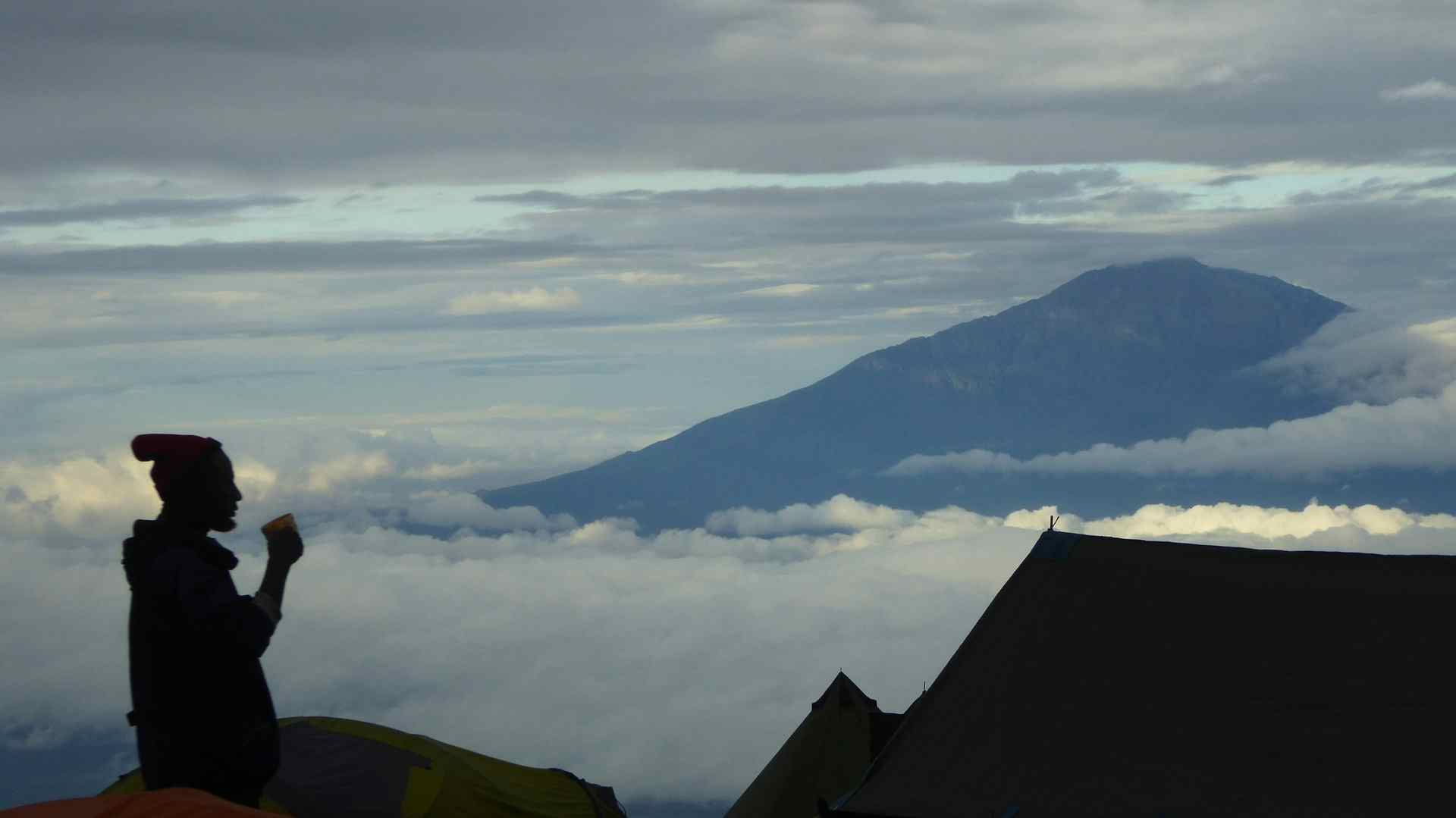
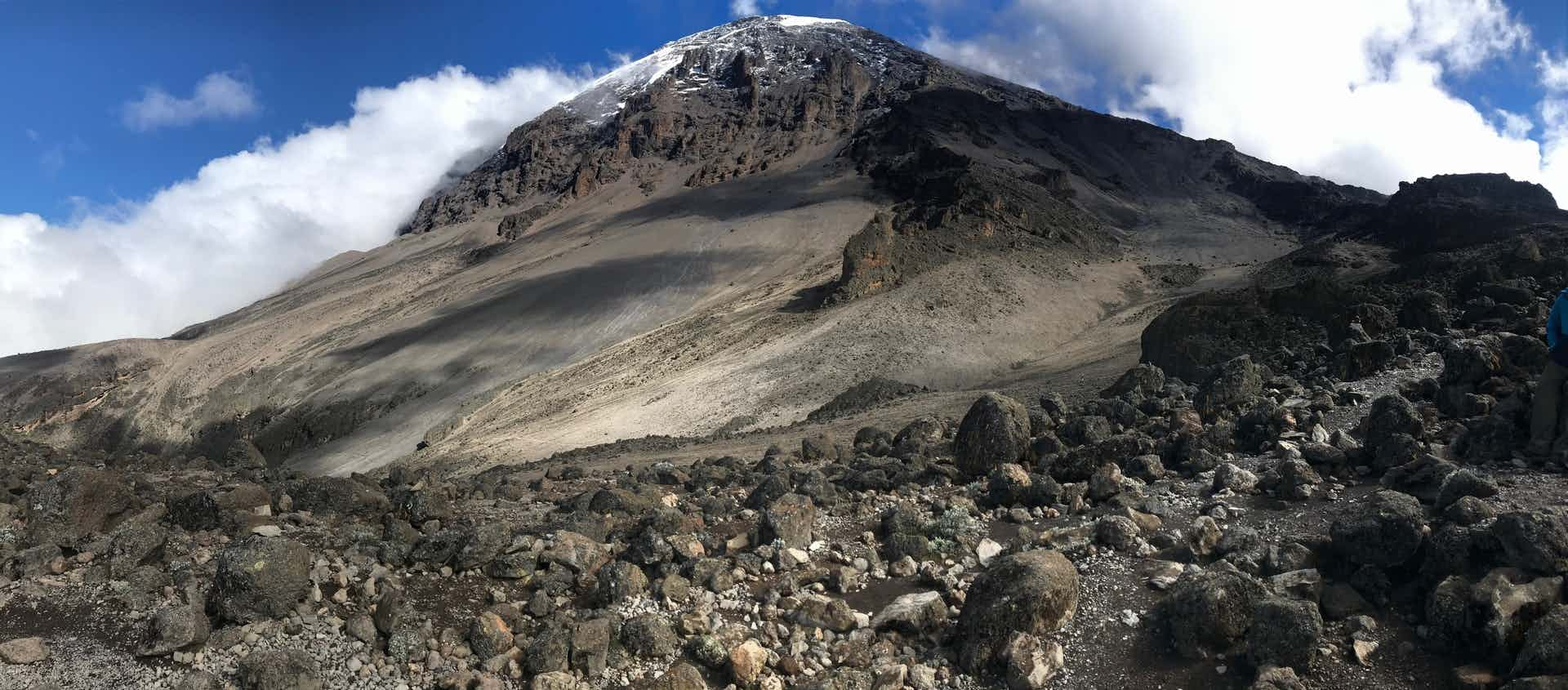
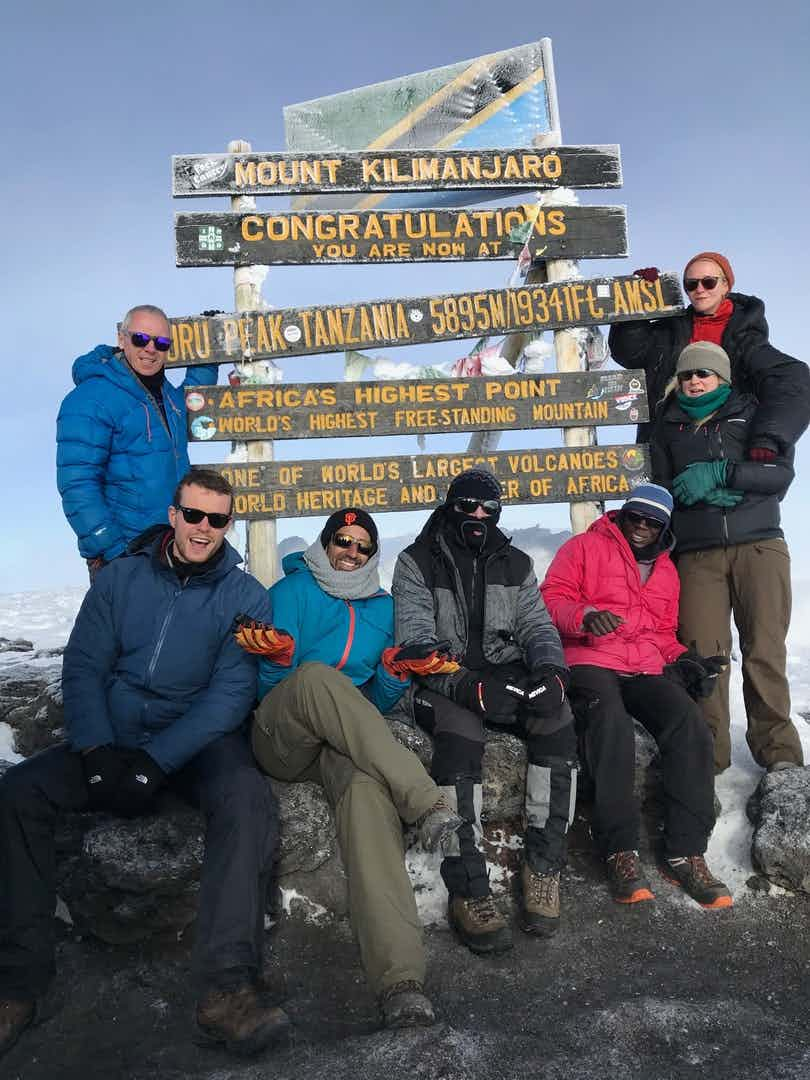
The entire trip was amazing, from the Tanzanian life in Moshi and the surrounding areas to the days on the mountain. Everyone in the trekking company was attentive and keen to help at all times. The guides were excellent, the chef was great, the waiter a massive character and the pilot and other porters all worked diligently throughout to make sure we had a good time. The kit provided was good quality and the food top-notch despite being halfway up a pretty big hill! The actual physicality of the climb was much easier than expected and meant that I was probably doing less in the way of exercise than I would on a normal day at home so it was easily within my capabilities. The constant feeling of being hungover due to altitude sickness at camp was all part of the experience and tended to abate once I was moving. We didn't have the best of weather but everything still ran smoothly and was enjoyable. We did, however, have good weather for summit night with some amazing views towards Mawenzi from Stella Point as the sun rose.
The dedication of the team (guides and porters) that helped get us up the mountain were great.
Itinerary Activities
- 7 days of guided trekking to the summit of Kilimanjaro via the Machame Route
Guides
- Experience, certified, local guides
- Full support team
Accommodation
- 6 nights camping along the route
- 2 nights in a hotel in Moshi
Meals
Your group will have a cook to prepare all your meals:
- 8 tasty and filling breakfasts
- 7 freshly prepared, hearty lunches
- 8 three-course dinners
Transfers
- Arrival transfer from Kilimanjaro Airport at any time on Day 1
- Departure transfer to Kilimanjaro Airport at any time on Day 9
- All transfers during the trip
Porterage
- Porters to carry your overnight luggage during the trek
- Porters to transport all the camping equipment (including a mess tent and toilet tent), food and water
Permits
- All permits, taxes and licenses
Our trips are hassle-free by design. We include all the activities and equipment, as well as many of the meals, so you can simply rock up with your rucksack and share the adventure with your new pals.
Travel to and from the trip
Our trips do not include flights, trains or other travel to the start point and back from the end point.
Tips
Tips are not included in the trip cost. These are, of course, entirely at your discretion but the norm in Tanzanian culture means there is an expectation to tip for good service. This particularly applies to climbing Kilimanjaro: while fair and sustainable wages are paid to all the support team, tipping culture is deeply ingrained and an important custom. Even if it may not be customary to you, it is of considerable significance to the people who will take care of you during your travels. After your climb, there will be a ‘tipping ceremony’ in which you’ll have the opportunity to show your gratitude to the team who have supported you along the way.
We would suggest a minimum tip of $400 per guest in 2024. This complies with local guidelines to support the fair and ethical treatment of porters, cooks and mountain guides.
The tipping ceremony is a celebratory affair, and will take place after you share a meal with your support team following the climb. Your host will provide guidance on the appropriate split of the money between the team members. Each individual will be presented with their portion of the tip in a sealed envelope, and in turn you’ll be presented with your Kilimanjaro summit certificate.
In Tanzania, many banks and businesses refuse notes that are old or damaged in any way, so tips with bills that are no more than 15 years old and in good condition are gratefully received.
Travel insurance
Travel insurance is compulsory for all of our adventures and you are required to provide your policy information before departing. Your insurance should include adequate protection for overseas medical treatment, evacuation/repatriation, your baggage and equipment and the specific activities involved on your adventure. We also strongly recommend it includes cancellation and curtailment insurance, should you be unable to join your trip for specific reasons such as illness. Our recommended travel insurance provider is Campbell Irvine, as their insurance offers all of the above.
Visas
You are responsible for obtaining any required visas for this trip. Please check with your nearest embassy or consulate for up-to-date advice. Information about visas can also be found on the Tanzanian Immigration website.
Personal Expenses
You know your own spending habits best, so please budget an appropriate amount for things like optional meals and drinks, shopping, optional activities, and laundry.
Mountain environments can be unpredictable. A layering system works best so that you can put on and remove items to adjust your temperature.
What's included?
- Tent
- Foam Mattress
What can I hire?
- Walking poles
- Headtorch (you will need to bring your own AAA batteries)
- Sleeping bag
- Day pack (with or without waterproof covers)
- Duffel bag
- Nalgene water bottle/water bladder
- A range of clothing (fleece pants, waterproof pants, walking trousers, windbreaker/ski trousers, waterproof jacket, light fleece jacket, heavy fleece jacket, down/ski jacket, hat, thermal top & bottoms, scarf, sunglasses, thin glove liners, thick ski gloves, hiking boots, gaiters, poncho, socks). Pricing ranges from $5-$50 per item for the whole trip. Please request any items you would like to hire with your host via your booking prior to departure for confirmation of pricing and availability.
What do I need to bring?
CLOTHING
- Waterproof jacket (good quality, breathable with hood)
- Weather rated insulated jacket (synthetic or down, with hood)
- Waterproof trousers (breathable)
- Hiking boots (warm, waterproof, broken-in with spare laces)
- Fleece or soft-shell jacket
- Long sleeved tops (lightweight, moisture-wicking fabric)
- Short sleeved t-shirts (lightweight, moisture-wicking fabric)
- Hiking trousers
- Fleece/Thermal trousers
- Shorts
- Knitted beanie hat
- Buff/Balaclava/Bandana (for face/neck coverage)
- Warm gloves (waterproof recommended)
- Something to sleep in (warm layers for camping at altitude)
- Underwear (moisture-wicking fabric recommended)
- Sports bra
- Socks (thick - wool or synthetic)
- Sock liners (tight and thin - worn under socks to prevent blisters - synthetic)
OTHER
- Duffel bag (for porters to carry your clothes and equipment-see related FAQ for guidance on weight)
- Backpack to carry your personal gear during the day (25-35 litres)
- Backpack cover (waterproof)
- Sleeping bag (warm, four season rated)
- Trekking poles (highly recommended)
- Waterproof gaiters / trail gaiters (highly recommended to prevent loose gravel and sand)
- Water bottle (Nalgene recommended) AND a water bladder (CamelBak type) - must have 2-3 litres combined; please note that disposable plastic bottles are not allowed on the mountain due to National Park regulations
- Headtorch with extra batteries
- Sun Protection (Sunglasses, Sun hat/cap, Sunscreen - SPF 35+ recommended))
- Lip balm
- Hand Gel
- Mosquito repellent (for Moshi - not usually needed on the mountain)
- Trip receipt
- Mobile charger
- Universal plug adaptor
- Personal medication and first aid kit
- Earplugs
- Power bank
- Book/Kindle/playing cards, for downtime
- Passports (and visas)
- Travel insurance documents
OPTIONAL
- Lightweight trainers/sneakers (to wear at camp - optional)
- Sleeping bag liner (for added warmth - optional)
- Liner gloves (thin, synthetic - worn under gloves for added warmth - optional)
- Poncho (during rainy season - optional)
- Towel (lightweight, quick-dry - optional)
- Pee bottle (to avoid leaving tent at night - highly recommended)
- Stuff sacks or lightweight dry bags (various sizes, to keep gear dry and separate - highly recommended)
- Hot water bottle for the night (optional)
- Swimwear (there is a pool at the accommodation in Moshi - optional)
- Extra water purification tablets (water will be purified by your trek team so this is optional)
- Extra Energy bars and snacks - read our article on Best Hiking Snacks
Extra night in Moshi (twin / double)
Payable Before Departure
Extra night in Moshi (twin / double)
… Per night
Extra night in Moshi (single)
Payable Before Departure
Extra night in Moshi (single)
… Per night
Optional Private Room & Tent Upgrade
Payable Before Departure
Optional Private Room & Tent Upgrade
… Per person
Private airport transfer - Kilimanjaro to Moshi - each way
Payable Before Departure
Private airport transfer - Kilimanjaro to Moshi - each way
…
We partner with the World Land Trust to ensure this trip achieves Net-Zero emissions. We also support their Buy an Acre programme, helping local communities to buy and protect natural habitats in perpetuity.
What's the number?
It works out on average at 251kg of CO2 emissions per person, including all local transport, accommodation, food, activities, guides, staff and office operations.
The only thing it doesn’t include right now is flights and travel to the destination. We do make an overall estimate across all our customers separately, but as we don’t book flights, have customers from all corners of the world, and no way of reliably knowing their travel plans, we simply can’t include an individual number in the figure on display here. We’ve got a goal to fix that, so that when you book, there is a way to measure and mitigate the carbon emitted by your flight too.
But what does the number mean?
Yep, hard to picture eh? To give you an idea:
- Driving 1000 miles/1609km would be approximately 281kg of CO2 in an average car (or 140.5kg per person, if there were two of you in it).
- A return economy class flight between London and New York would be approximately 1619kg (1.66 tonnes) per person.
- 10 trees in a temperate forest are estimated to remove approximately 250kg of CO2 from the air in a period of 5-10 years.
What are we doing about it?
Our trips are relatively low-carbon by design, and we're working with all our hosts to develop long term carbon reduction plans. We partner with the World Land Trust to ensure this trip achieves Net-Zero emissions. We also support their Buy an Acre programme, helping local communities to buy and protect natural habitats in perpetuity, ensuring the protection of the reserve and its wildlife.
Want to know more?
Amazingly, no international travel company has ever publicly published their carbon measurements before, as far as we know. We believe that must change, quickly. So we’re openly sharing the method we used in the hope that other companies will be able to more easily follow suit and build on what we've done so far. You'll find it all here.
Much Better Adventures offers three routes on Kilimanjaro. Depending on your preferences you can choose a route that is best suited to you; whether that's escaping the crowds on the quieter sides of the mountain, spending more time in Kilimanjaro's forest and moorland environments for best wildlife spotting, and of course finding a trip that suits the time and budget you have available.
Rongai Route (7 days on the mountain): A much quieter and more remote trek away from the crowds. Approaching from the north, your climb starts on Kilimanjaro's second peak, Mawenzi, before crossing a high saddle onto the main peak, Kibo, where you reach the same high point of the other routes, Uhuru Peak. The days are generally considered more moderate, with gradual climbs and avoiding the Baranco Wall scramble. However, the challenges of altitude and a long summit day remain. To reach the start of the Rongai Route involves a 3-4 hour drive.
Lemosho Route (8 days on the mountain): Our longest route with the highest success rate, if you have the extra day available this is probably the best all-round route for most. The Lemosho Route starts to the west of Kilimanjaro and enjoys three days of relatively quiet trails before joining the Machame Route at Lava Tower. These first days are through temperate forest, with good potential for wildlife spotting, before climbing up and across the Shira Plateau. With the extra day on the mountain, it is a more complete experience, seeing all sides and zones of the mountain, as well as allowing more time to adjust to the altitude – it is the route with the highest success rate and growing in popularity because of this.
Machame Route (7 days on the mountain): Considered to be very scenic, the Machame Route strikes a good balance between a safe acclimatisation profile and an efficient itinerary – the Machame Park Gate is only a 45-minute drive from Moshi, so it's the quickest to get to. As with Rongai and Lemosho, you have a different descent route for your way down the mountain.
See our guide to the Best Routes on Kilimanjaro for the full lowdown.
We do everything we can to give you the best chance of summiting Kilimanjaro successfully and safely. From the routes we choose, to the care and food provided on the mountain, our local host is very well placed to get you to the top! We have an average summit success rate of around 95% for all routes!
The guides have been extensively trained at the Mweka Wildlife Centre and are familiar with the routes, terrain and conditions. With over 10 years' experience, they have also been to the summit more than 100 times. Additionally, all of the guides are certified First Aid Responders and CPR trained.
For every customer, you'll be accompanied by approximately 4 supporting crew members. For example, a group of 8 is likely to be accompanied by 33 support crew. This is broken down as one lead guide, three assistant guides, one cook/chef, one waiter, one pilot (toilet porter), one tent crew, four summit porters (to carry day packs on summit day) and 21 regular porters who carry any additional equipment.
Tips are not included in the trip cost. These are, of course, entirely at your discretion but the norm in Tanzanian culture means there is an expectation to tip for good service. This particularly applies to climbing Kilimanjaro, where tipping culture is deeply ingrained and an important custom. Even if it may not be customary to you, it is of considerable significance to the people who will take care of you during your travels. After your climb, there will be a ‘tipping ceremony’ in which you’ll have the opportunity to show your gratitude to the team who have supported you along the way.
We would suggest a minimum tip of $400 per guest in 2024. This complies with local guidelines to support the fair and ethical treatment of porters, cooks and mountain guides.
The tipping ceremony is a celebratory affair, and will take place after you share a meal with your support team following the climb. Your host will provide guidance on the appropriate split of the money between the team members. Each individual will be presented with their portion of the tip in a sealed envelope, and in turn you’ll be presented with your Kilimanjaro summit certificate.
In Tanzania, many banks and businesses refuse notes that are old or damaged in any way, so tips with bills that are no more than 15 years old and in good condition are gratefully received.
If you have any hiking gear that’s in good condition but you don’t need after your trek, donations to your team of porters will be gratefully received. Talk to your host if you’d like donate any of your gear.
If you need to be taken down to a lower altitude as a matter of urgency, there are two options in place. In most instances, steel-framed, mobile stretchers can be pushed by porters to descend quickly. Most people feel immediate relief at lower altitudes where you will be evaluated and if the guides determine you are well enough, you will wait for your group at a lower camp or be taken to the gate for transfer to Moshi for medical treatment (if necessary). For more serious concerns, through a partnership with Kilimanjaro SAR, emergency helicopters can be deployed within 5 minutes for evacuation, complete with in-flight medical treatment. If you require further medical attention upon landing, you will be taken to their modern, private High Altitude Medical Clinic, designed to tackle Acute Mountain Sickness (AMS). Please ensure that you have appropriate insurance coverage for trekking with evacuation coverage for up to 6,000 metres above sea level.
Yes! Oxygen cylinders are carried on all of our climbs for emergency use only. In addition to this, our guides perform daily health and pulse oxymeter checks, which measure both your heart rate and the percentage of oxygen in your blood. Ensuring and monitoring your health and safety at all altitudes is your host's top priority, and all guides are well-trained to identify the signs of AMS and act accordingly.
There is a limit to the weight that the porters can carry and your main kitbag must be no heavier than 15kg. Your sleeping bag can be packed separately, so this doesn’t need to be included in this weight limit. We would ask that you only bring essential items on the mountain to minimise the loads that the porters carry.
You will also need to have a daypack to hold your basic kit for each day of walking. We recommend that this is not over 6kg, and the lighter the better. Please bear in mind that you will need to carry a significant amount of water, so this will add to the weight of your daypack.
Extra items not required on the mountain can be left in Moshi.
You can securely leave any excess luggage at your host's base before setting off on the trek.
Your team of porters will provide you with boiled and filtered water throughout the trek.
Yes! Just mention this in the enquiry form when you book or message your host after you have booked and they can help you to arrange this. Prices are shown above in the Optional Extras section.
In this case the optional single room charge would be halved.
A plastic bag ban went into effect across Tanzania from 1st June 2019 and the use, manufacture or importation of plastic bags, including garbage bags and shopping bags, is now illegal and convicted offenders, including tourists, can face heavy fines, imprisonment for up to two years, or both. Visitors are advised to avoid packing any plastic bags in their suitcases or hand luggage before flying to Tanzania. Items purchased at the airport before boarding the aircraft should also be removed from plastic bags. Please check your hand luggage before disembarking at entry points and any plastic bags should be left on the plane. Similarly, the transparent zip-lock plastic bags that some airlines require passengers to use for keeping liquids, cosmetics, toiletries etc are also not permitted and should be removed and left on the plane before disembarking.
Absolutely! Good thinking. Check out our Climb Kilimanjaro & Go On Safari Adventure.
You are responsible for obtaining any required visas for this trip. Please check with your nearest embassy or consulate for up-to-date advice. Information about visas can also be found on the Tanzanian Immigration website.
If you are eligible for an e-visa and are required to provide the address of your accommodation, please use the following details:
Weru Weru River Lodge
Address: Mailisita, Moshi-Kilimanjaro Tanzania
Email: [email protected]
Phone: +255 788 829 777
PO Box 855
This trip reaches elevations above 4500m, where the risks associated with Altitude Sickness (AMS) are higher, and where more serious conditions like HAPE (High Altitude Pulmonary Edema) and HACE (High Altitude Cerebral Edema) can occur.
Previous high-altitude experience doesn’t guarantee the same reaction every time, but it can be a helpful indicator. It gives you insight into how your body might respond, helps you recognise symptoms early, and prepares you mentally and physically for the demands of high-altitude trekking.
Your guide is trained to manage altitude risk by carefully managing the rate of ascent, monitoring group wellbeing, and taking action if anyone becomes unwell.
Before travelling, think about your own physical condition and consult a medical professional if you have concerns – especially if you have underlying health issues. If possible, arriving a day or two early at altitude is a great way to help your body adjust.
Your travel insurance must cover the maximum altitude reached on this trip and include emergency evacuation.
Sure can! Over 70% of our travellers travel solo, it’s a great way to meet like-minded people.
Our team of Adventure Hunters co-create exclusive adventures which are run by highly vetted, specialist hosts. The trip is run by our trusted host partner in the destination. We only work with independent, local, in-destination experts who know the very best places to explore and how to stay safe. Read more information about the local teams we partner with. You’ll be introduced to the host straight after making a booking via the Much Better Adventures platform.
Much Better Adventures refer to the UK Government’s official travel advice when designing trips and monitoring trip operations. We recommend that all customers are familiar with the practical information provided on the Government’s FCDO website, where current travel advice can be found by searching for the applicable destination(s).
For customers joining this trip from other international destinations – please also read the official travel advice applicable to your country of residence/origin, as this may differ.
We recommend checking out the country-specific information and also talking to a travel nurse.
We automatically convert prices from the local currency that a host receives to your chosen currency. We update our exchange rates on a daily basis so this does mean that prices displayed on the site are subject to currency fluctuations, which is why you may see them change over time.
If you wish to change the currency you pay in, head to the bottom of the page.
All of our group adventures are specially designed for adults to enjoy as we want these adventures to bring together outdoorsy people who are truly like-minded. You must be over 18 to join one of our trips.
You're always in good company on one of our adventures.
Our trips are typically made up of a mixture of solo travellers and small groups of 2 or 3 friends, with most in their 30s-50s.
Our sociable adventures are solo-friendly by design and naturally attract outdoorsy people with a shared mindset; a love for adventure, a desire to push themselves and meet awesome, like-minded people along the way.
It’s this camaraderie that has so often turned a great adventure into a life-changing one.
Don't just take our word for it:
- 95% of people rate the group dynamics on our trips 5/5
- 90% of people recommend joining a trip to make new friends
- 75% of people have met people on our trips that they would now consider friends
See here for more info about the Much Better Adventures tribe.
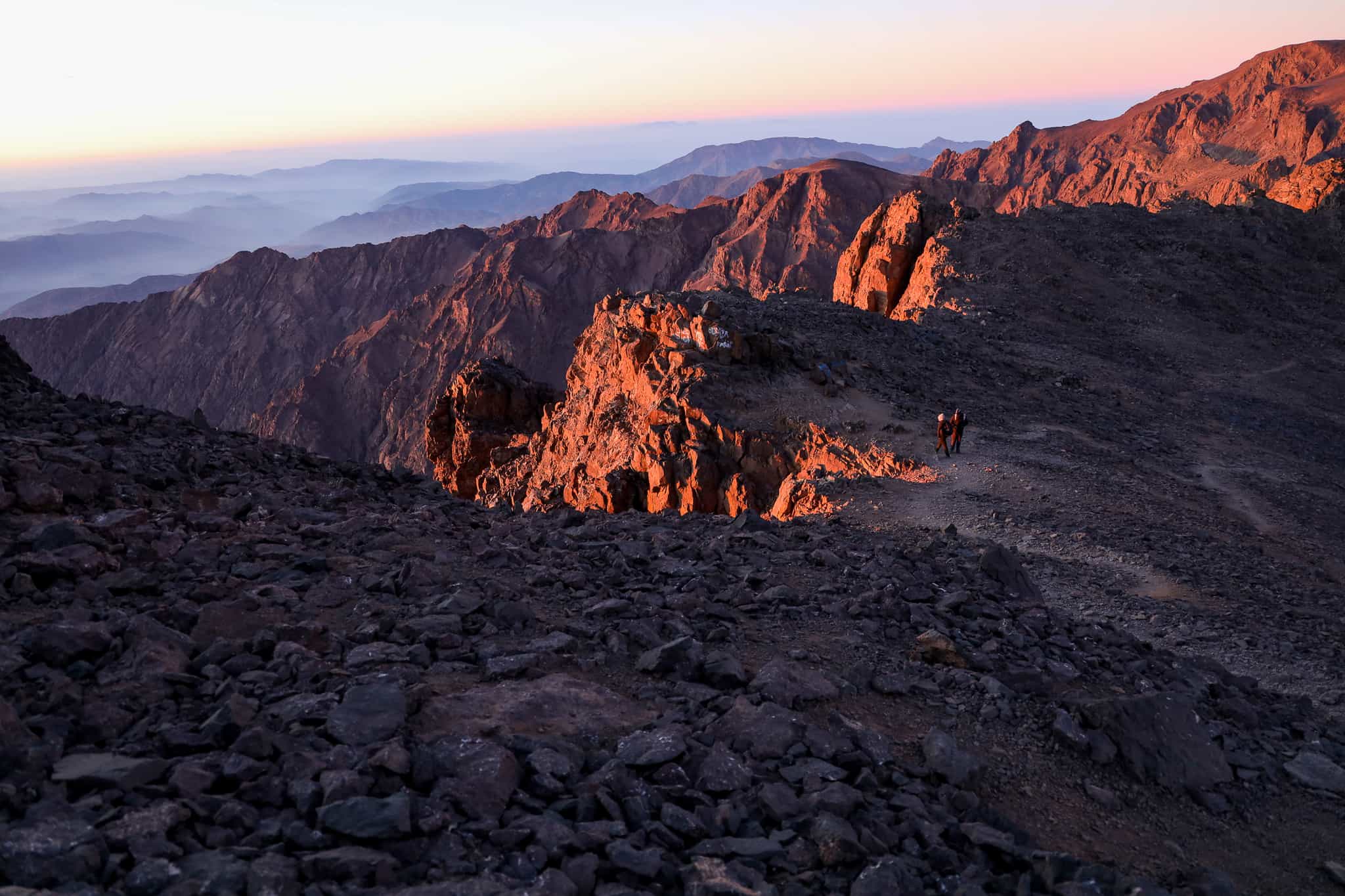
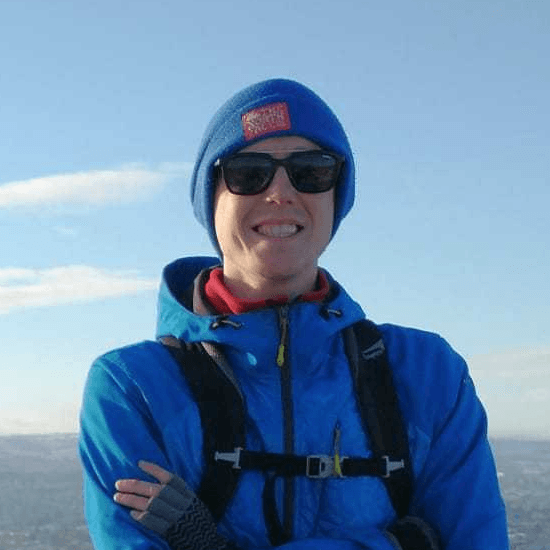
Need help finding flights?
From logistics and how to get there, to fitness, group dynamic and trip difficulty, Rory and his team of friendly experts are on hand to help.
We've got your back
Guaranteed to run
All Much Better Adventures trips are now guaranteed to run. Once you’ve booked your spot you can immediately make your travel arrangements, no uncertainty, no hanging about (excludes 'request to book' departures). Full details
Flexible payments
Secure your spot with the minimum deposit and pay off the remaining balance in as many instalments as you like, with no interest or fees. Full details
Happiness Guarantee
We’re so confident you’ll have an amazing time we’ll put our money on it. Full details
Full financial protection
To give you complete peace of mind Much Better Adventures is backed by ABTOT, ABTA and ATOL memberships. Full details
Tried & Trusted
Much Better Adventures is rated ‘Excellent’ on Trustpilot with over 1000 verified trip reviews averaging 4.8/5.
Connect before you go
You'll be invited to join a WhatsApp group to get to know each other before your big adventure together. Full details
DEPARTURE DATES
Saturday 2nd August 2025
to Sunday 10th August 2025
Hurry; only 1 space left
Saturday 9th August 2025
to Sunday 17th August 2025
Saturday 30th August 2025
to Sunday 7th September 2025
Last Minute Offer - Next 1 spot available at 10% off
